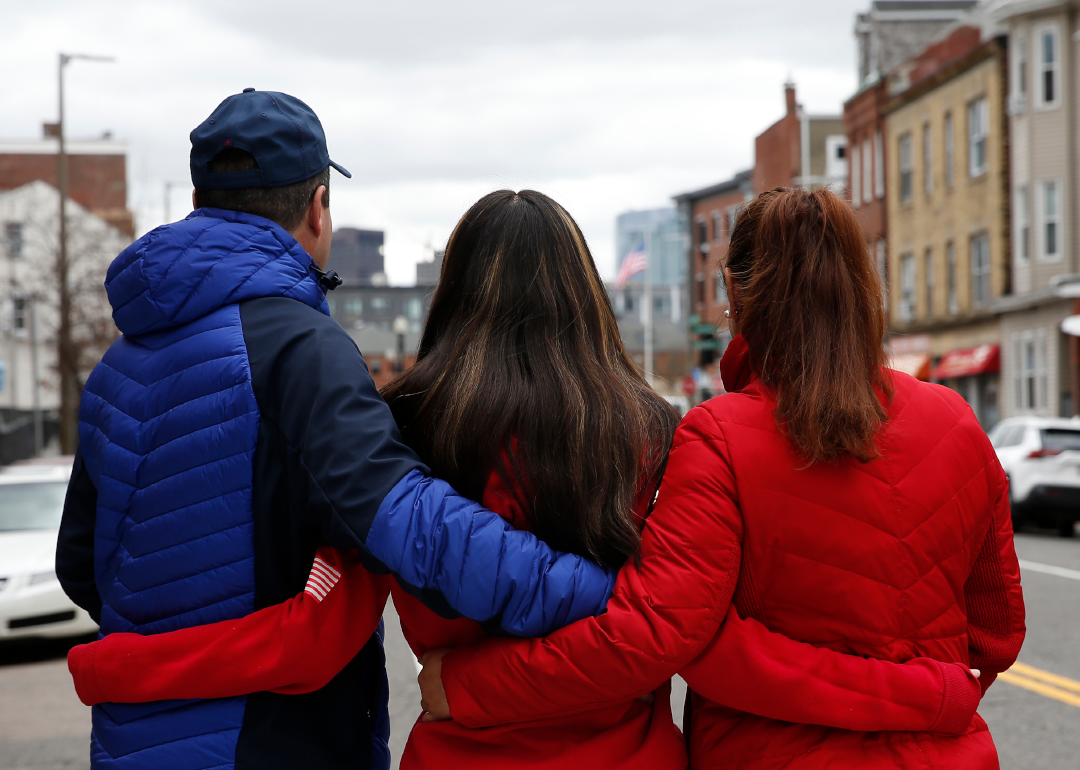
How COVID-19 is impacting undocumented immigrants in America
How COVID-19 is impacting undocumented immigrants in America
When the pandemic hit the United States, the government took action to protect citizens and offer relief from some of its effects. The federal government placed restrictions on border crossings to help curb the spread of the coronavirus. It created a $2 trillion relief package to provide $1,200 stimulus checks to adults, plus another $500 for each child under 16 in their household. It provided states with funding for extra unemployment benefits to the millions of people who had been laid off from work. And it required employers to guarantee paid sick leave to employees who were quarantined, experiencing COVID-19 symptoms, or needed to care for a child while their school or child care facility was closed during the pandemic.
While these measures certainly helped many, they were not extended to another very large group of people in the country: undocumented immigrants. Government-sponsored benefits, like unemployment insurance, financial aid, and medical care, typically exclude the estimated 10.5 million undocumented immigrants living in the country. This situation can make it tough to get by in normal times, but during a pandemic, a lack of benefits and protection can become life-threatening.
Furthermore, undocumented immigrants have also faced an additional layer of problems from enforcement agencies and at detention facilities. Some have been too afraid of being arrested to seek a coronavirus test, instead suffering symptoms at home and unwittingly spreading the infection to those around them. Others, who have been detained, have been subjected to unsanitary conditions and harsh punishments for organizing at facilities across the country.
This is just the tip of the iceberg when it comes to how the coronavirus pandemic is affecting the lives of undocumented immigrants, though. Stacker used news briefs, government reports, and data from independent research groups to compile a list of 50 ways COVID-19 is impacting undocumented immigrants in America.
This list covers several different areas of immigration, including benefits, health care, jobs, travel, detention centers, immigration status proceedings, government policies, cases of COVID-19 at detention facilities, and access to care and resources. These impacts have been prevalent in different ways between March and June.
Click through to learn how undocumented immigrants in the United States have been impacted by COVID-19.
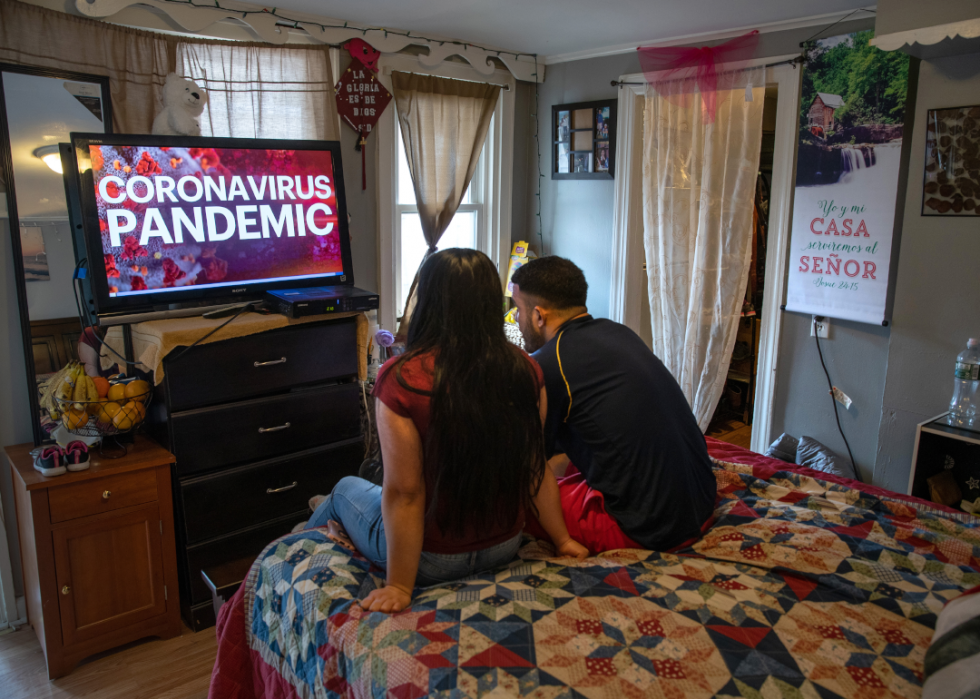
Undocumented immigrants face difficulty accessing COVID-19 tests
While the Affordable Care Act has helped put health care within reach for growing numbers of Americans since it was signed into law in 2010, the same can’t be said for undocumented immigrants, who are excluded from the act. A May report in The New England Journal of Medicine warns the estimated 7.1 million undocumented immigrants who don’t have health insurance may not be able to access COVID-19 tests and treatment due to costs.
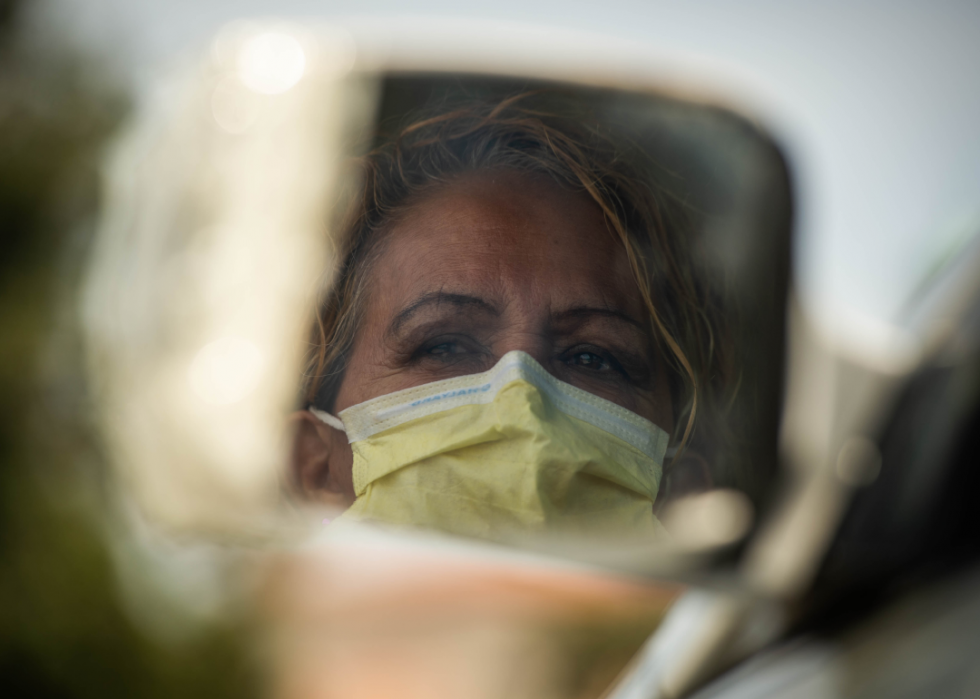
Economic relief package doesn’t help undocumented immigrants
Widespread job losses have put both American citizens and undocumented immigrants in financial distress during the pandemic. While the federal government’s economic relief package provided some help, most undocumented immigrants were excluded from the direct cash distributions, even though they may have paid taxes, according to The New England Journal of Medicine. A lack of funds could make it difficult for them to feed their families, pay their rent, and get back on their feet.
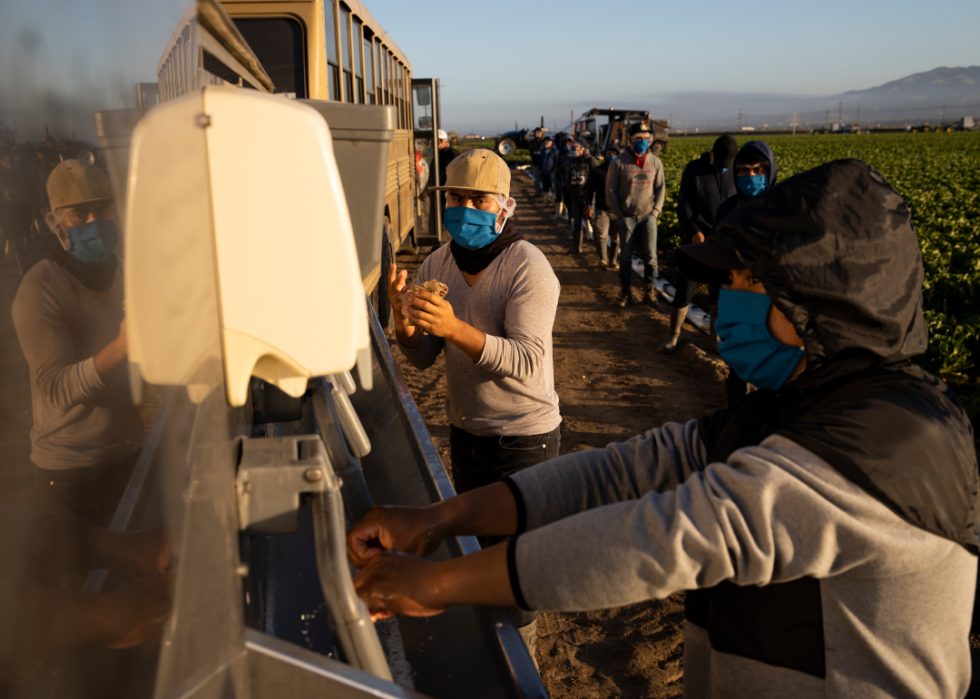
6 million immigrants are essential workers
An estimated 6 million immigrants, a statistic that doesn’t make a distinction between documented and undocumented immigrants, have served as essential workers during the COVID-19 crisis, keeping residents of the United States healthy and fed, according to the Migration Policy Institute. In fact, undocumented workers play an important role in the health care industry in occupations like home health aids, housekeepers and cleaners, and personal care aids, according to the New American Economy Research Fund. Some undocumented immigrants who work in essential jobs have not received personal protective equipment from their employers, according to Lissandra Villa of Time magazine.
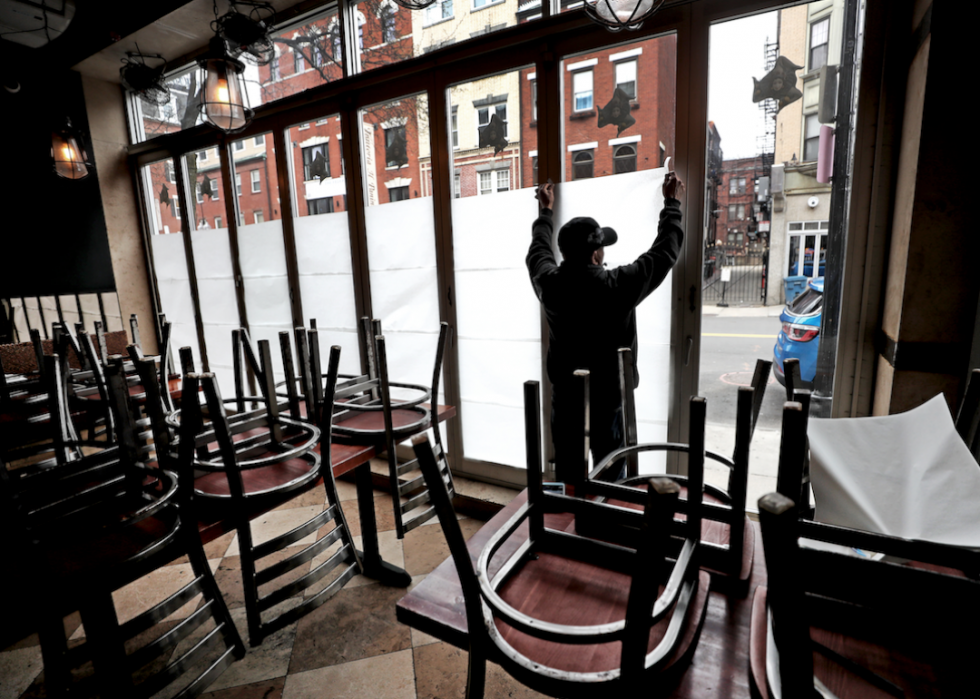
6 million immigrants work in industries hit hardest by COVID-19
Immigrant workers are overrepresented in industries that have suffered mass layoffs during the pandemic, according to the Migration Policy Institute. It estimates that 6 million immigrants, a statistic that doesn’t make a distinction between documented and undocumented immigrants, comprise high shares of workers in fields like manufacturing, agriculture, transportation—all of which have faced financial difficulties related to COVID-19.
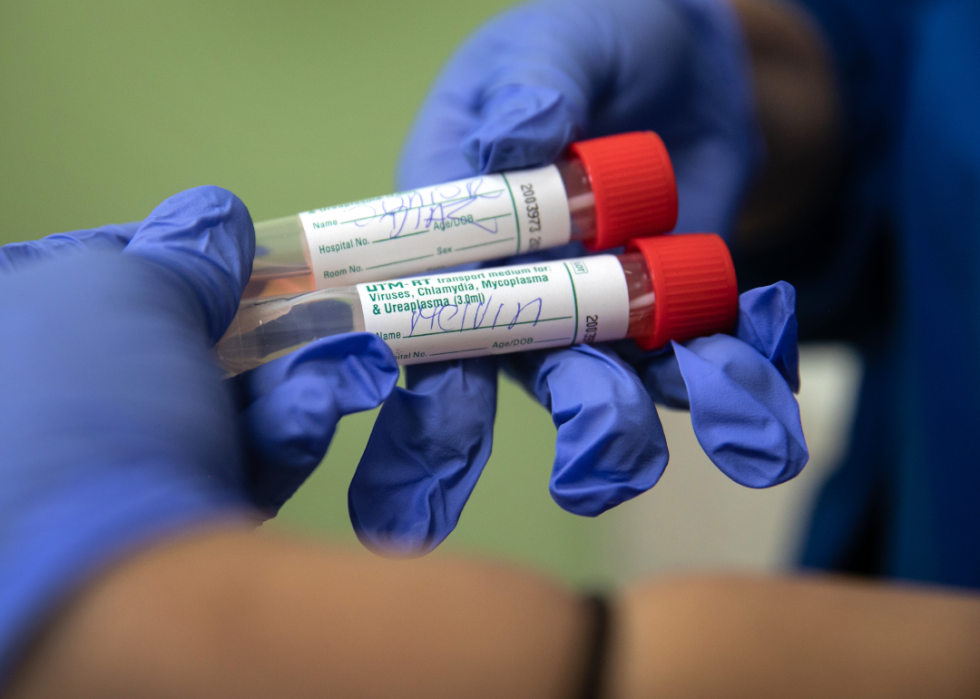
COVID-19 treatment and testing are not available under emergency Medicaid
Tens of millions of people, many of whom are undocumented immigrants, were excluded from free COVID-19 testing and treatment that had become available through the Families First Act because it did not make those services available through emergency Medicaid, according to Lissandra Villa of Time magazine. However, the economic relief package did provide funding for coronavirus testing at community health centers that do provide health care for undocumented immigrants.
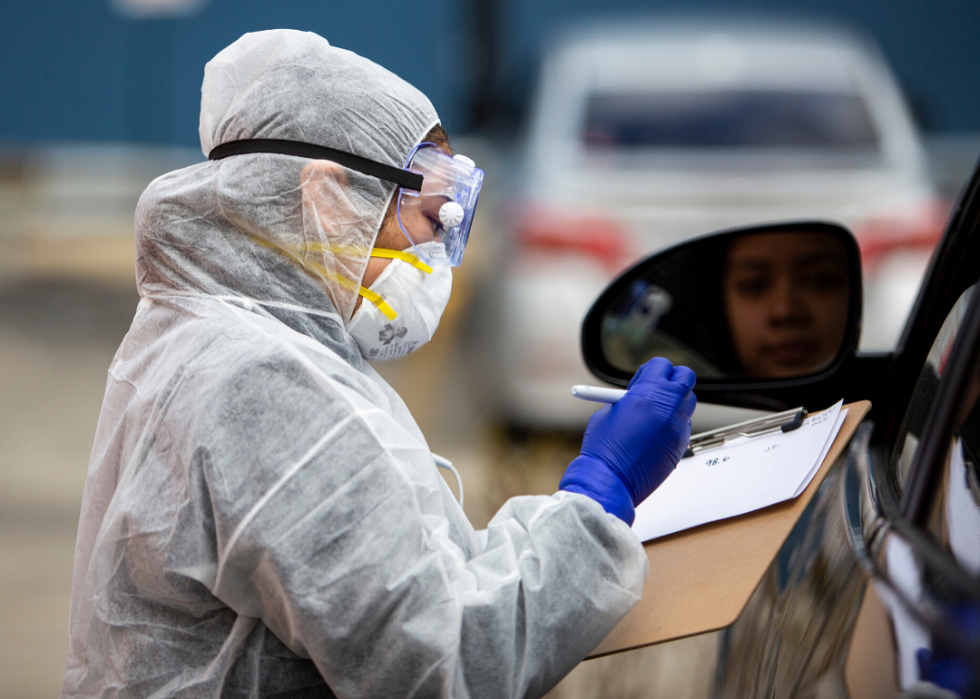
Undocumented immigrants avoid COVID-19 test out of fear of deportation
To help encourage people with COVID-19 symptoms to seek care, President Trump announced in March that undocumented immigrants can access coronavirus tests “without fear of arrest or deportation,” according to Brett Samuels of The Hill. However, Usha Lee McFarling of Stat found in mid-April that the president’s statements have not put undocumented immigrants at ease, and many high-risk people are still avoiding the test out of concern they’ll be deported.
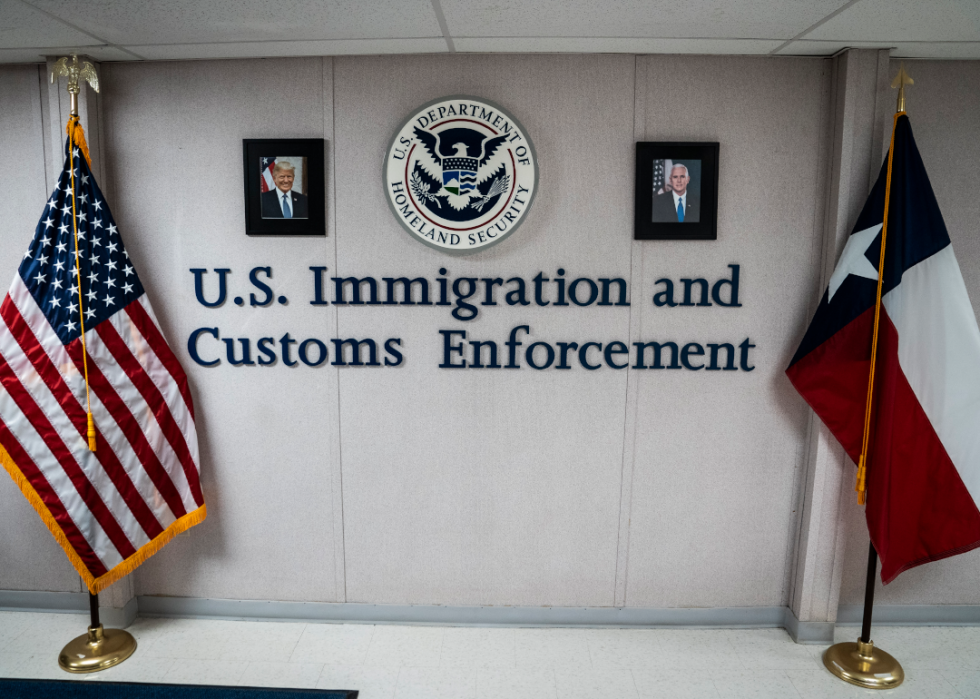
ICE postpones arrests of many undocumented immigrants
U.S. Immigration and Customs Enforcement (ICE) announced in mid-March that it would postpone most arrests during the pandemic, according to Vanessa Romo of NPR. The agency said it would only continue pursuing people who met certain criteria, like those who are putting public safety in jeopardy or people who are “subject to mandatory detention on criminal grounds.”
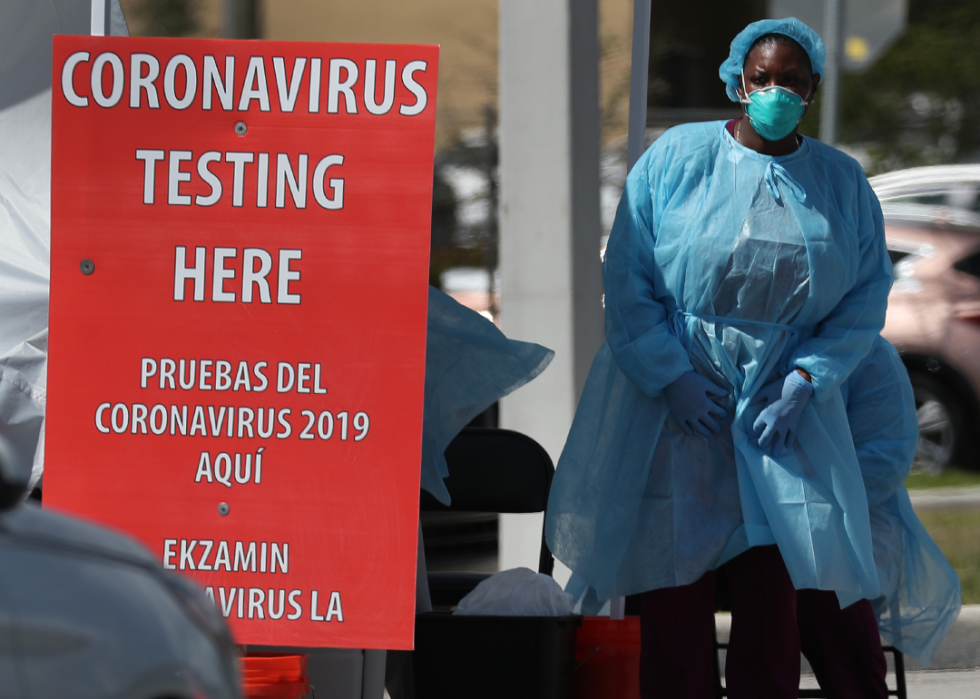
COVID-19 tests don’t count against Public Charge rule
U.S. Citizenship and Immigration Services (USCIS) issued new guidance in March that treatment and preventive services for COVID-19 will not count against immigrants applying for certain statuses under the Public Charge rule. However, the rule, which requires applications for green cards and temporary visas to be denied if the person is likely to require public assistance, has made immigrants less likely to access essential benefits like the supplemental nutrition assistance program, according to a June report from the Urban Institute.
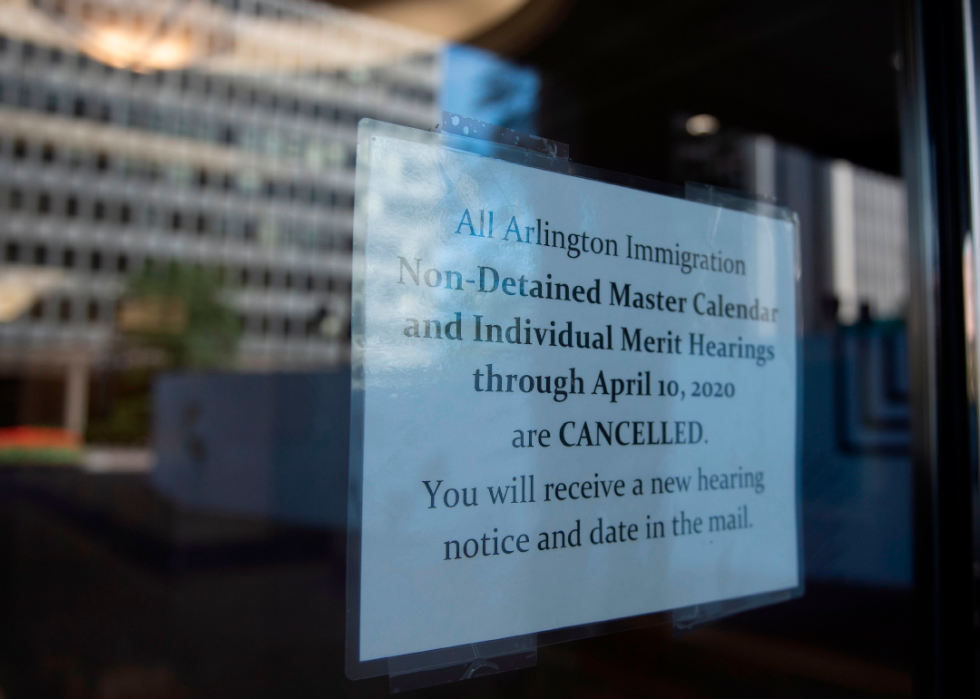
Bond hearings for detained immigrants were either canceled or postponed
With many courtrooms closed during the pandemic, undocumented immigrants have had their bond hearings canceled or postponed with no new date on the calendar, according to Allyssa M.G. Scheyer of Jurist. That has left countless immigrants in overcrowded detention cells and without the protections of due process.
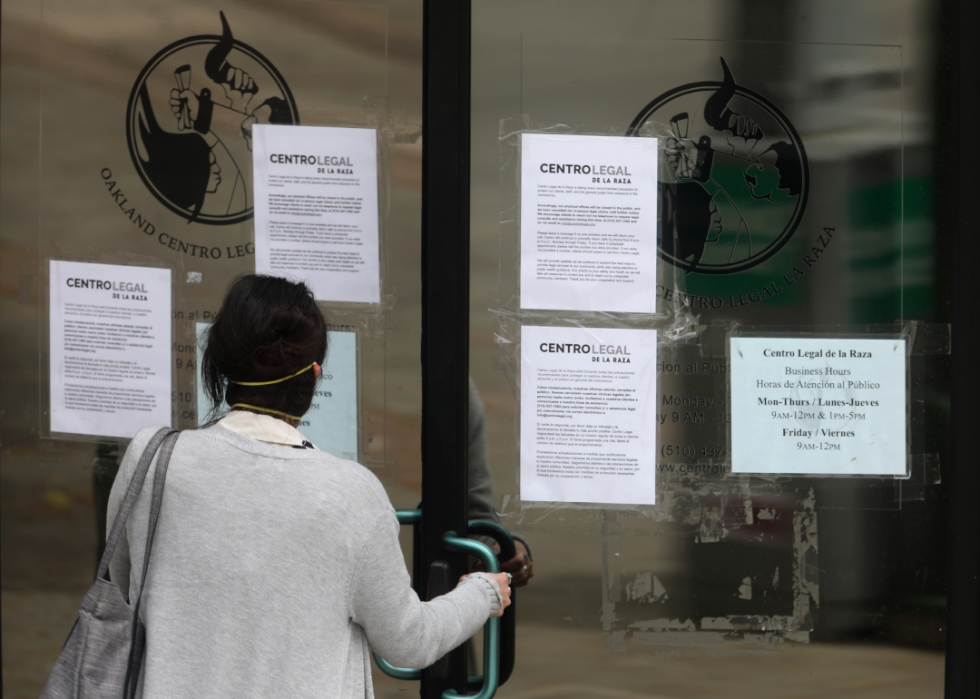
Courts hold virtual asylum hearings for immigrant children
Unaccompanied, undocumented minors who are facing deportation have been going through asylum hearings through video, rather than in person, in a Houston pilot program during the pandemic. These proceedings have had technical difficulties and been criticized by some immigration attorneys as lacking due process, according to Cat Cardenas of Texas Monthly.
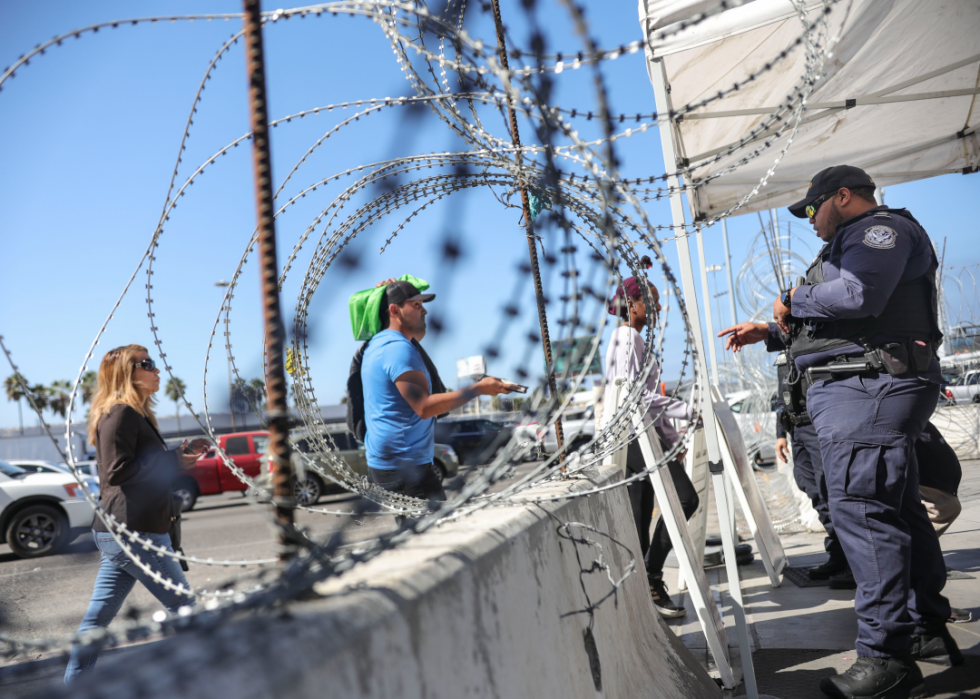
Deportation protections and work permits may expire for undocumented immigrants
While offices of the USCIS were closed due to stay-at-home orders, some undocumented immigrants were at risk of a lapse in their work permits and deportation protections, according to the MacArthur Foundation. Many offices remain closed, but some began reopening for non-emergency services on June 4.
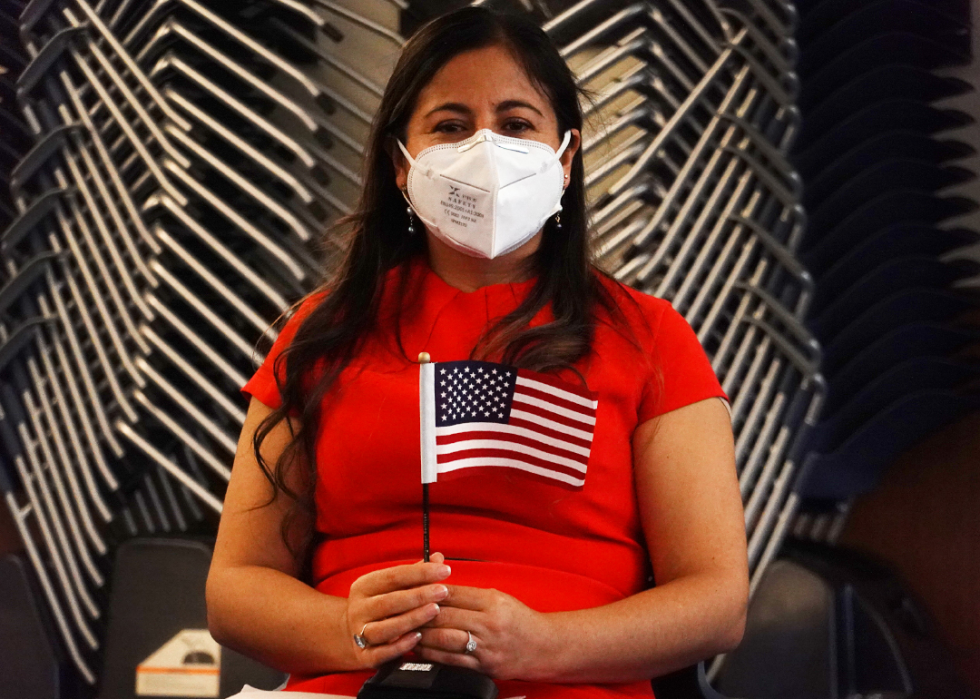
Immigrants take citizenship oath by drive-thru
After its offices were closed for months, USCIS is now working through a backlog of immigrants who are ready to take their citizenship oaths. They are speeding up the process through an oath drive-thru, allowing immigrants to become American citizens without leaving their cars, according to Tresa Baldas of Detroit Free Press.
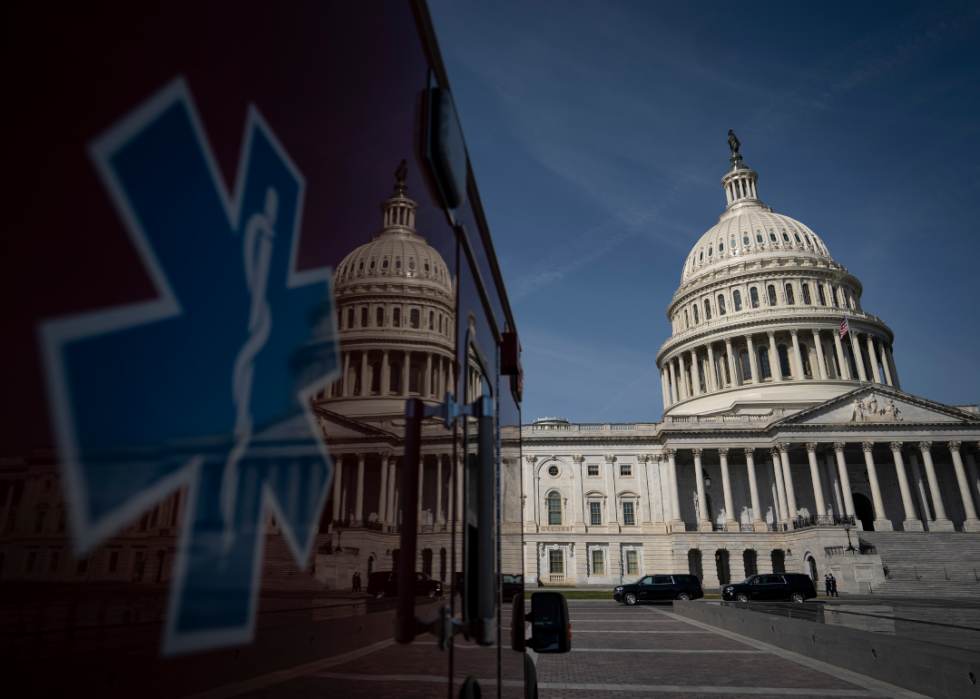
Congress releases report affirming immigrants’ ineligibility for key benefits
A Congressional Research Service (CRS) report updated on May 7, reaffirmed that unauthorized immigrants are not entitled to many types of federal benefits, like non-emergency Medicaid and housing assistance programs. The report did point out some federal benefits that undocumented immigrants may be able to access under certain circumstances, such as short-term emergency disaster relief, Medicaid-sponsored medical treatment for emergency conditions, and vaccines.
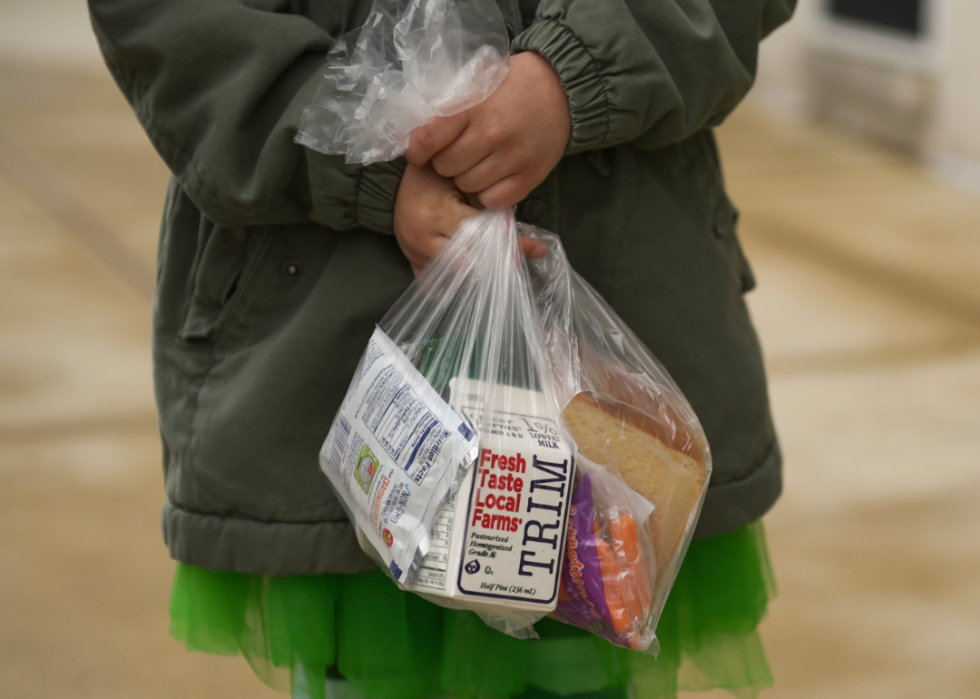
Undocumented children who were eligible for free school lunch could still receive free meals in most cases
The Summer Food Service Program provides more than 145 million healthy meals to kids when schools are closed, and usually doesn’t require citizenship for children to participate. Guidance released by the CRS in May, affirmed that participating students would still be eligible for these benefits and that the programs would receive additional funding through federal pandemic-related efforts.

Government provides $1.32 billion to community health centers that serve undocumented immigrants
The federal CARES Act infused an additional $1.32 billion into community health centers during the pandemic. Undocumented immigrants can get health care services at these facilities, as they are an exception to the Personal Responsibility and Work Opportunity Act.
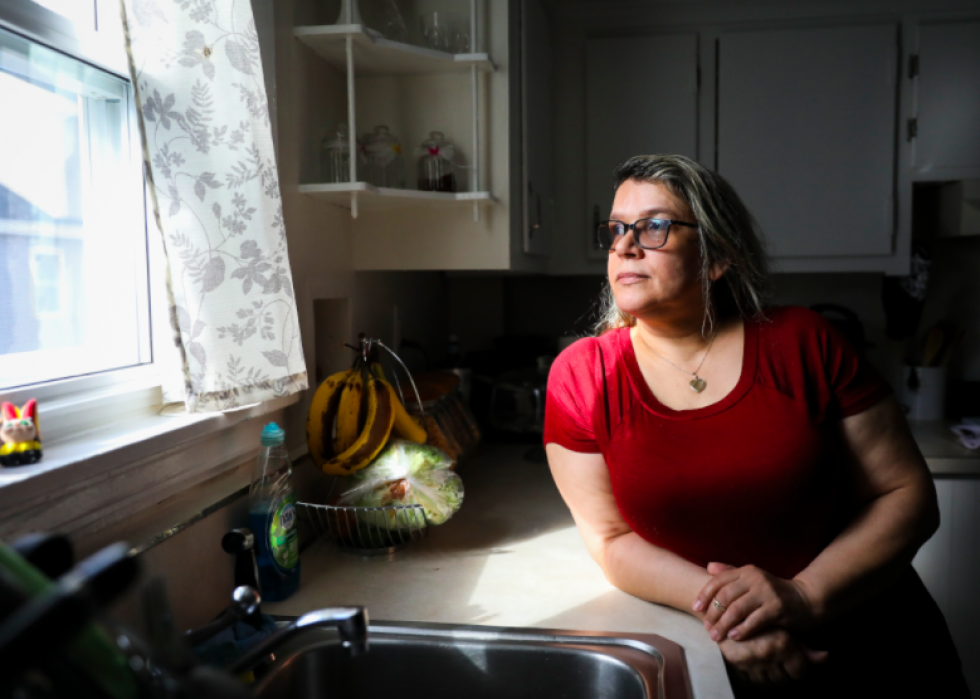
Undocumented immigrants can’t access unemployment benefits
While the CARES Act provides unemployment insurance benefits to workers who do not typically qualify for that program, like independent contractors and self-employed people, it did not extend eligibility to undocumented immigrants. Unemployment insurance requires that recipients have U.S. work authorization, which undocumented immigrants do not have, according to a May CRS report.
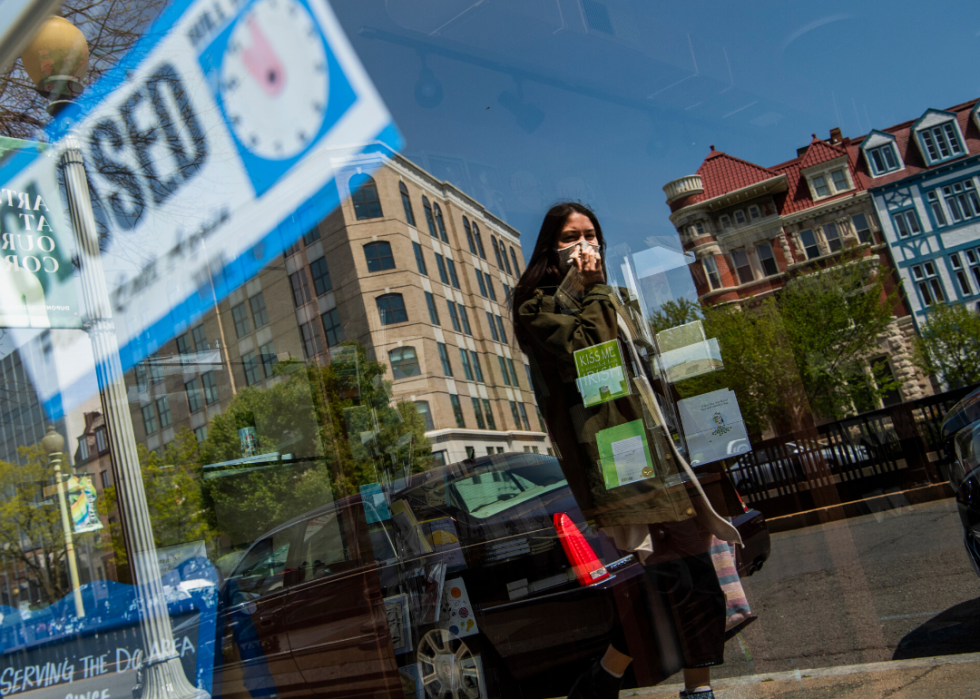
Business owners may not be able to pay undocumented workers with loans from CARES Act
The CARES Act provided funding for special loans to help small businesses cover payroll expenses and other costs during the pandemic. The program stipulated that the funds could not be used to pay any employee whose primary residence is in a foreign country, which could have an impact on a borrowers’ ability to compensate undocumented immigrants, according to a CRS report from May.
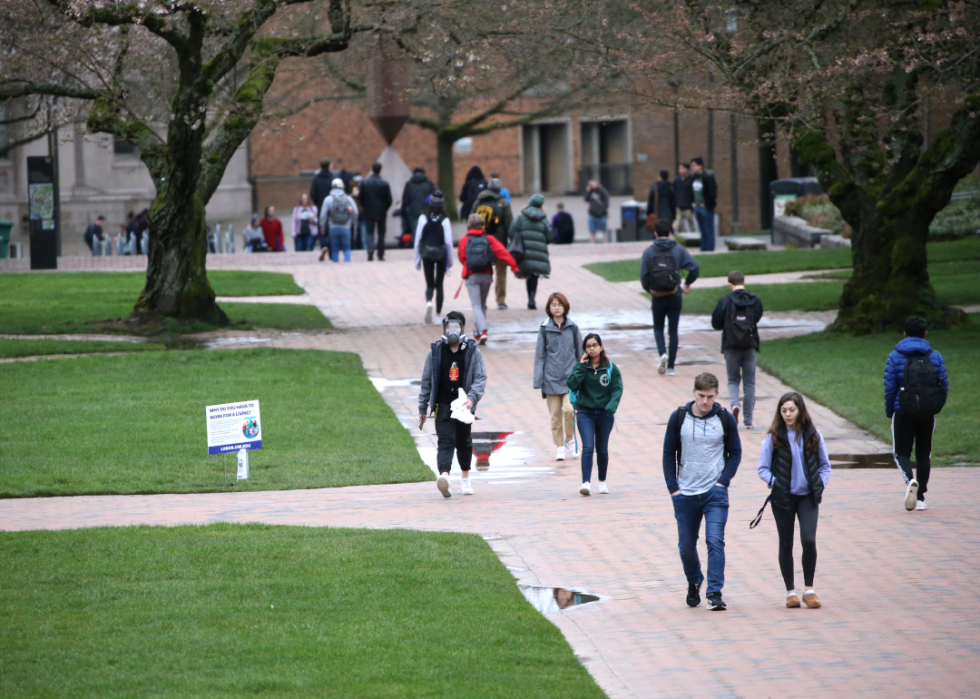
Undocumented college students can’t get emergency financial aid
Undocumented immigrants enrolled in postsecondary education were deemed ineligible for aid from the CARES Act’s Higher Education Emergency Relief Fund, according to a May CRS report. Researchers from the Presidents’ Alliance on Higher Education and Immigrants and the New American Economy estimate that there are at least 450,000 undocumented immigrants enrolled in postsecondary education at U.S. colleges and universities as of April.
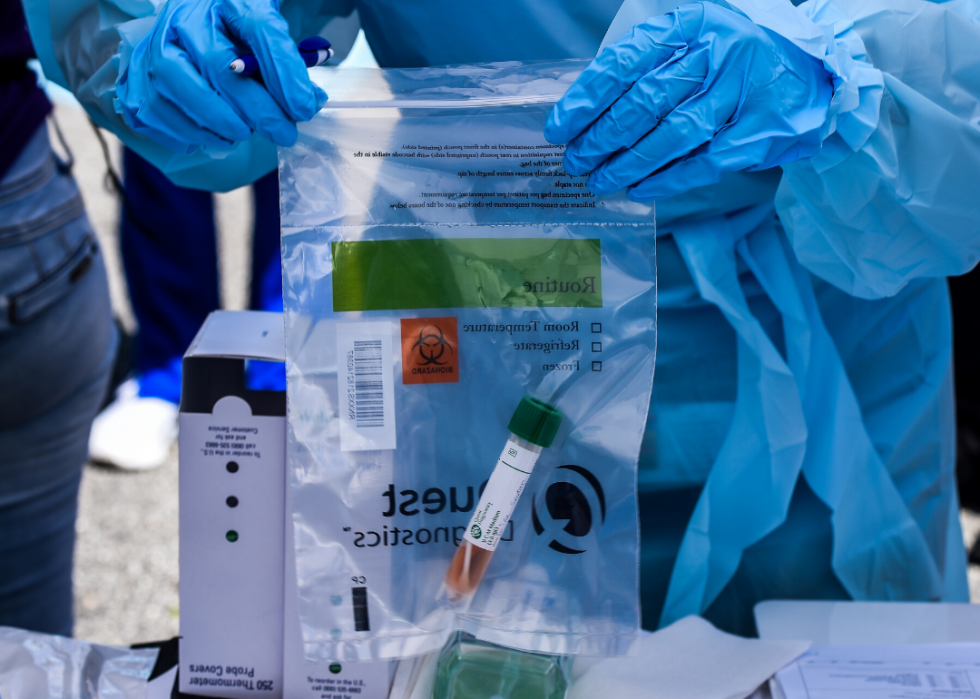
ICE only tested 10% of detainees for COVID-19 by late May
Only 1 in 10 people in the custody of ICE had been tested for COVID-19 as of May 28, according to Freedom for Immigrants. As of May 16, the agency had a total of 26,680 people detained.
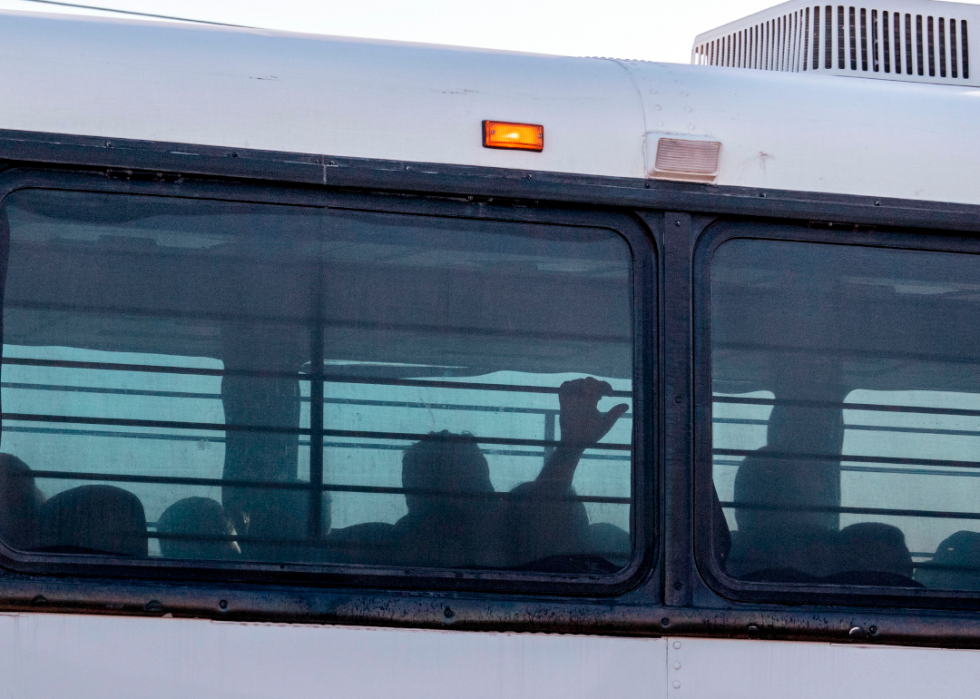
Transfers of immigrants in ICE custody leads to COVID-19 outbreaks
Despite stay-at-home orders, ICE continued to transfer detained immigrants to facilities around the country, according to Lisa Riordan Seville and Hannah Rappleye of NBC News. While ICE claims that the transfers were sometimes used as a strategy to stop the spread of the coronavirus, they have resulted in outbreaks in detention centers in Texas, Louisiana, Florida, and other states, according to ICE documents, news articles, and attorneys.

ICE runs 112 deportation flights between March and April
ICE ran 112 flights to deport undocumented immigrants to 13 countries between early March and late April, according to the Center for Economic Policy and Research. Some flights included passengers who had tested positive for COVID-19, according to Freedom for Immigrants.
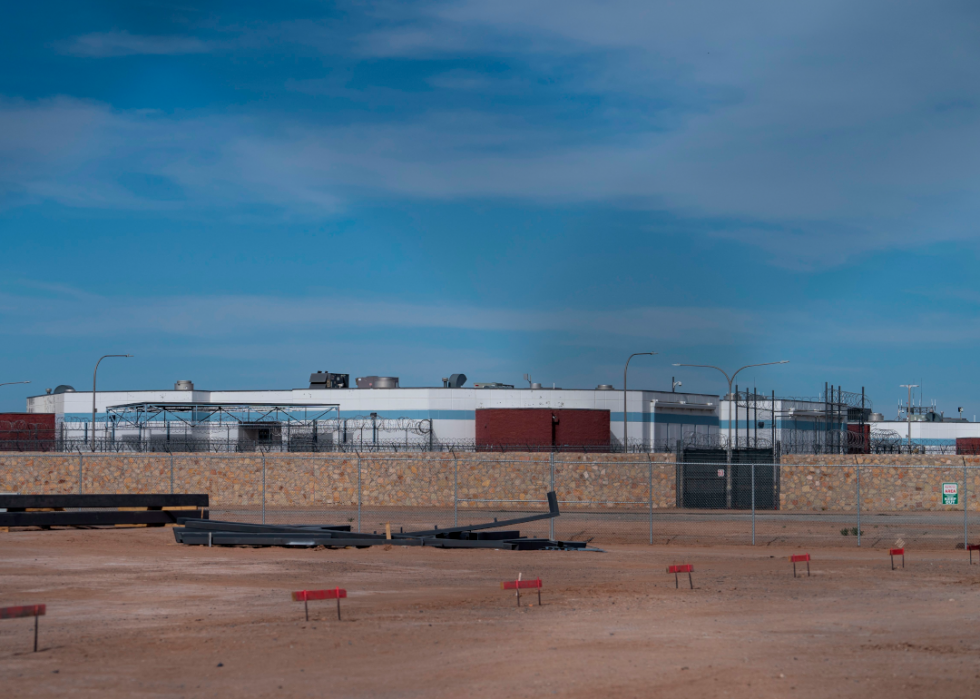
Detainees at ICE facilities lead at least 40 protests against poor conditions
Freedom for Immigrants has counted at least “40 instances of internal organizing” among immigrants detained at facilities run by ICE during the pandemic. They used petitions, hunger strikes, open letters, and other strategies to draw attention to unsanitary conditions and medical neglect at the facilities.
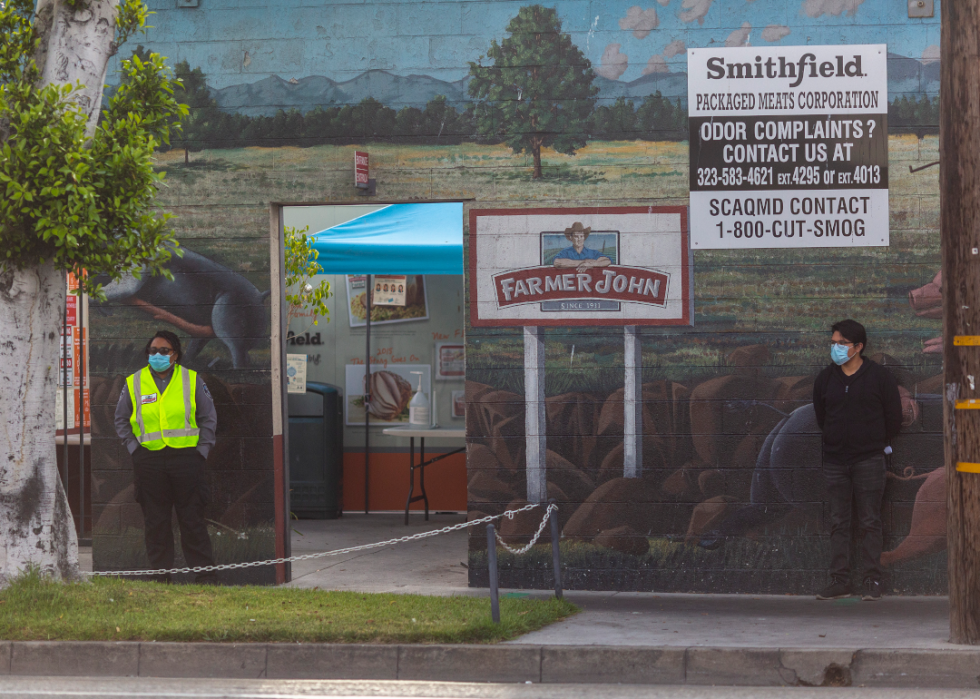
Workers at meatpacking plants contract COVID-19
More than 10,000 workers at meatpacking plants in the United States had contracted the coronavirus and dozens had died of COVID-19 as of May 25, according to Adam Gabbatt of The Guardian. Undocumented immigrants comprise 30%–50% of all meatpacking workers, according to Brett Orrell of the American Enterprise Institute.
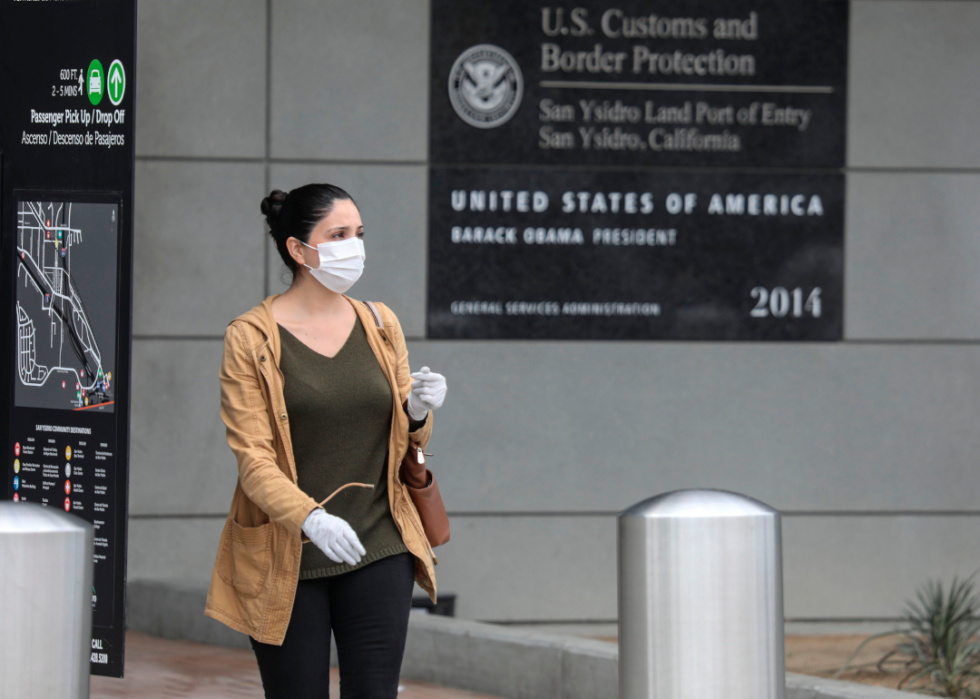
Trump stops issuing new green cards for 60 days
President Trump suspended the issuance of new green cards, also known as immigrant visas, to people in foreign countries for 60 days starting on April 22, with some exceptions. The measure made little impact at first, as the State Department had already suspended its international visa services on March 20. However, if Trump’s proclamation is renewed after the State Department resumes regular service, it may prevent approximately 315,000 immigrants from entering the U.S., according to Muzaffar Chishti and Jessica Bolter of Migration Policy Institute.
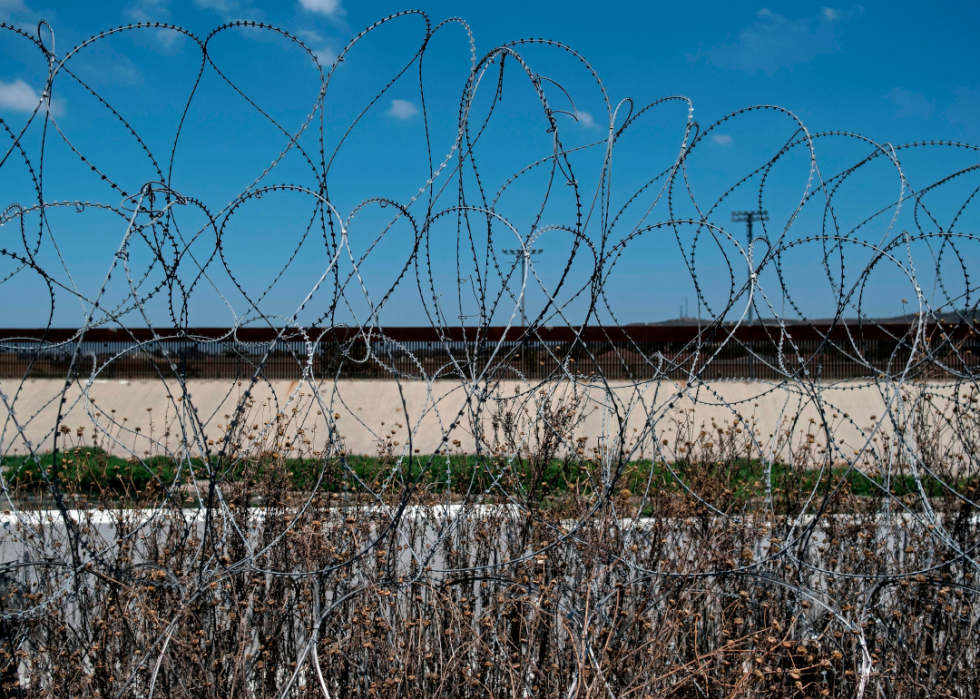
The UN temporarily suspends resettlement travel for refugees
The United Nations temporarily suspended its efforts to resettle refugees from their homelands to other countries on March 17, in response to the pandemic. The United States added its own travel restrictions three days later that permitted border patrol agents to stop asylum seekers from coming into the country to help curb the spread of the coronavirus, which is against international law, according to Grantmakers Concerned with Immigrants and Refugees.
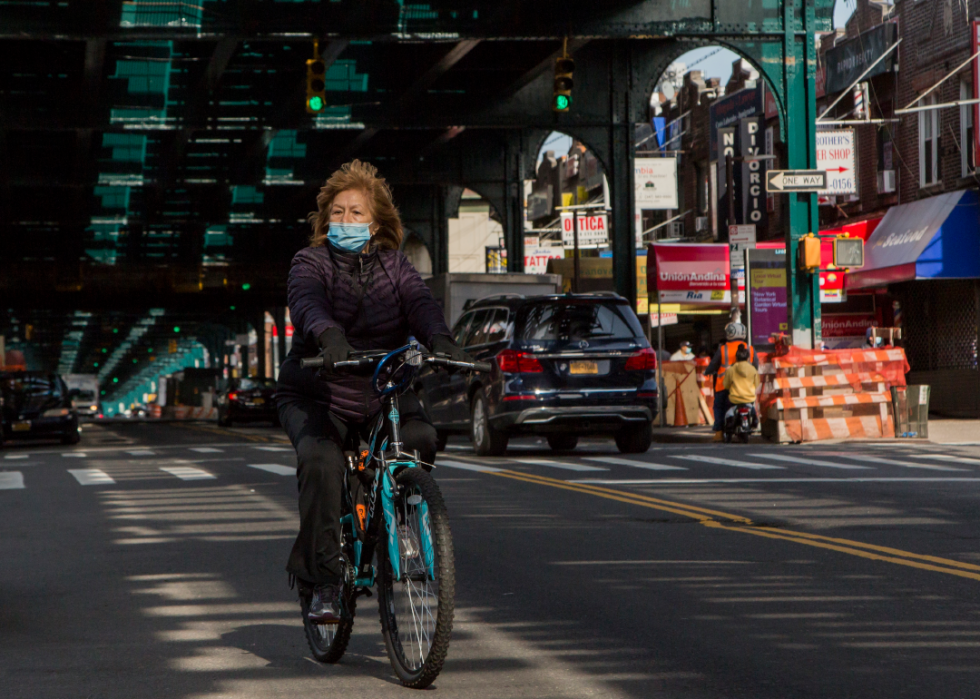
Most undocumented immigrants live in states hit hardest by COVID-19
Nearly 60% of the estimated 10.5 million undocumented immigrants in the United States live in New York, Illinois, Florida, California, Texas, and New Jersey according to Carolina Moreno of Refinery 29. These states are among the top 10 that have been hit hardest by the COVID-19 pandemic.
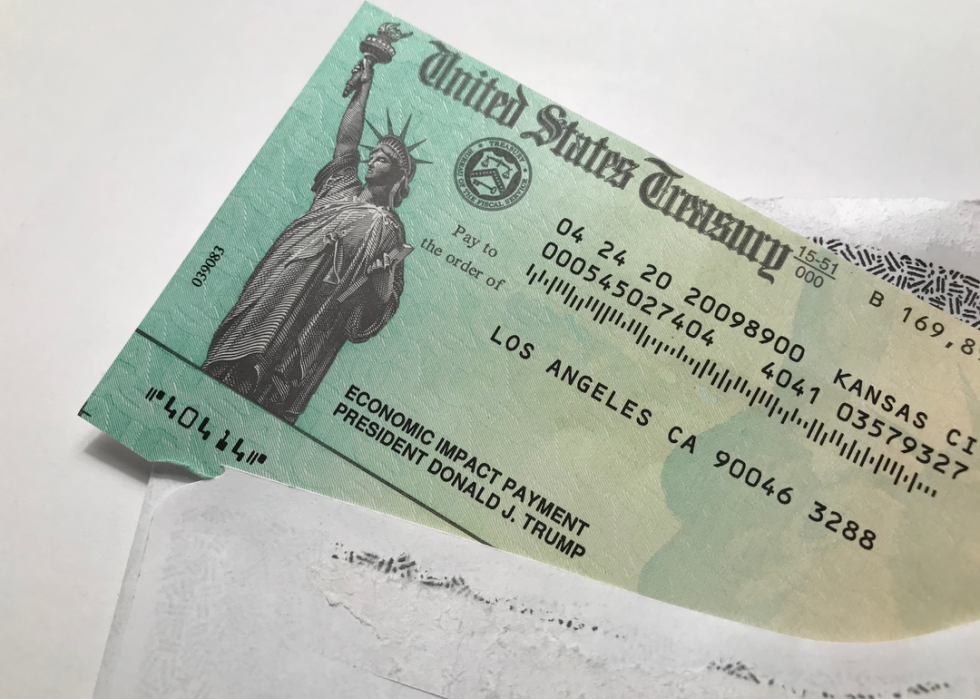
US citizens married to immigrants do not receive stimulus checks
The federal government did not send the $1,200 stimulus checks from the coronavirus relief package to U.S. citizens whose spouses are immigrants that don’t have Social Security numbers, according to Aimee Picchi of CBS News. An Illinois resident has filed a lawsuit against the Trump administration, alleging that the restrictions on the stimulus checks infringe on the “right to marry and discriminate based on ‘alienage’,” according to Danny Cevallos of NBC News.
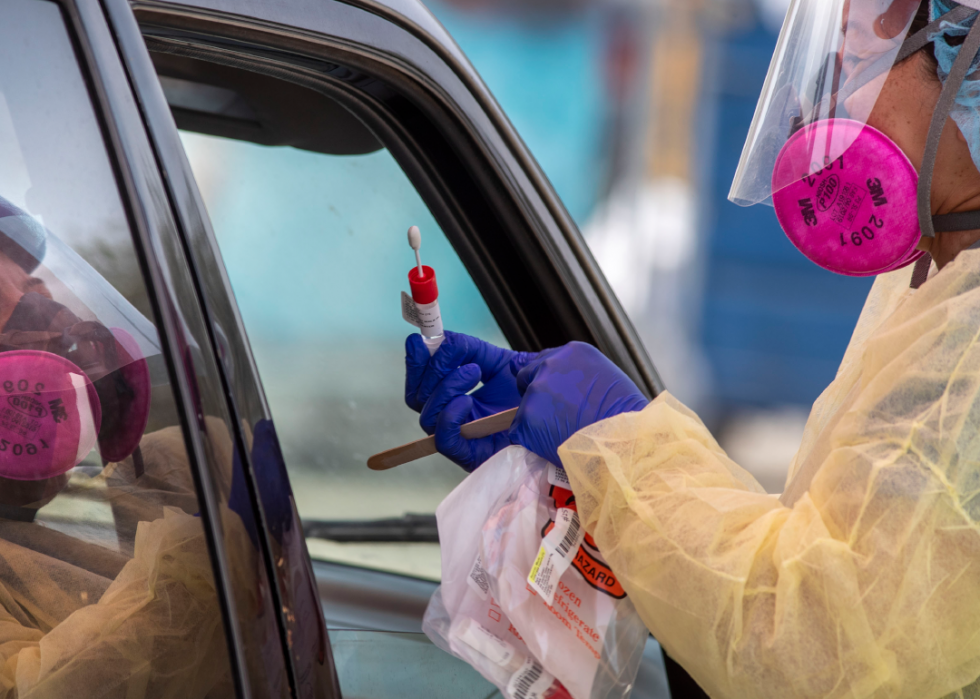
California and New York offer free COVID-19 testing to undocumented immigrants
New York and California have been providing free COVID-19 testing for all of their residents, regardless of citizenship, according to Carolina Moreno of Refinery29. However, undocumented immigrants may still face other barriers that make it difficult to access the medical tests. New Jersey, for example, offers free COVID-19 testing to all residents, but requires proof of identification, such as a passport, according to Raymond G. Lahoud of Norris McLaughlin Attorneys at Law.
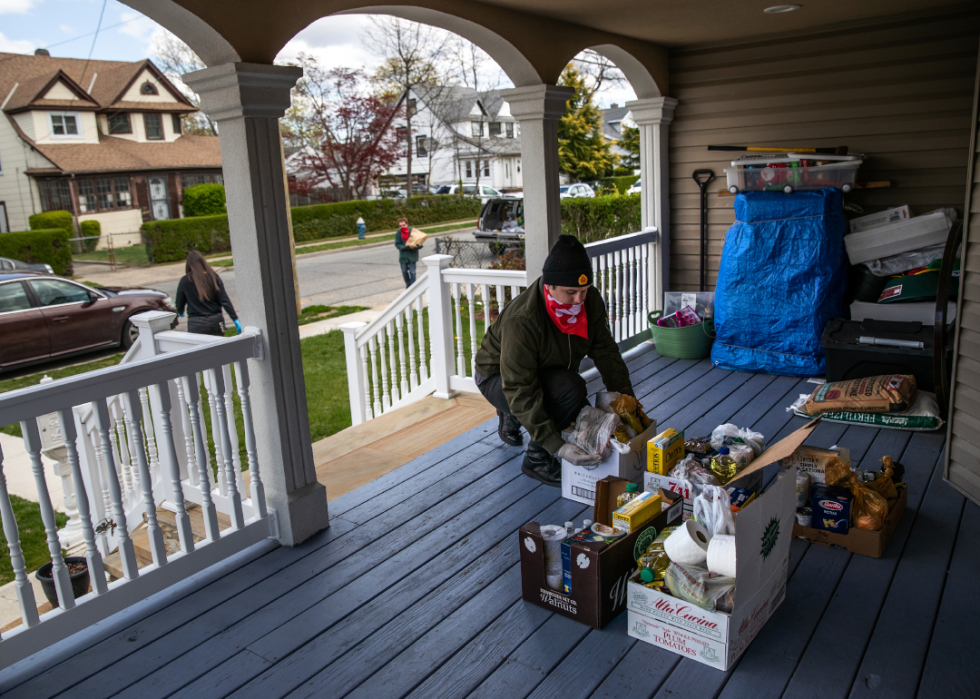
States and cities launch relief programs for undocumented workers affected by COVID-19
California was the first state in the nation to provide aid to undocumented immigrants through a $125 million fund, collected from philanthropists and state donations, according to Carolina Moreno of Refinery29. A handful of other states and cities have announced similar aid for undocumented immigrants. New York City, for example, announced in mid-April a new $20 million COVID-19 Immigrant Emergency Relief program, which was created through a partnership between Open Society Foundations, the Mayor’s Fund to Advance New York City, and the NYC Mayor’s Office of Immigrant Affairs. It will provide relief to 20,000 immigrant workers.
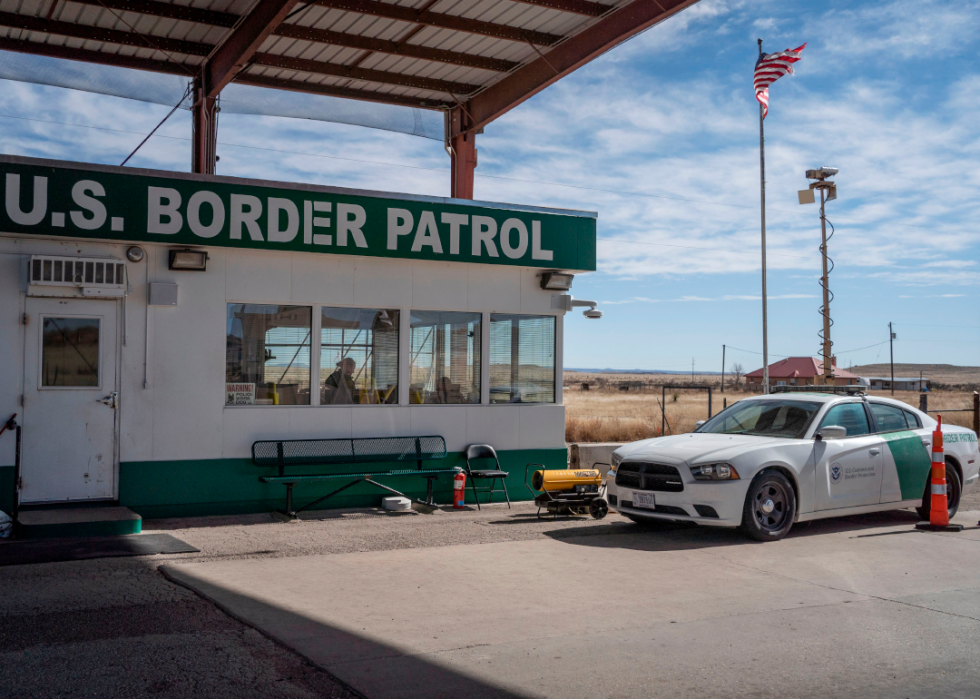
Border Patrol agents return migrants to Mexico faster than usual
New coronavirus prevention measures have hastened the time it takes the U.S. Border Patrol to expel migrants back to Mexico after they've crossed the border, according to Nick Miroff of The Washington Post. Migrants from Honduras, Mexico, El Salvador, and Guatemala are now being processed "in the field" and sent back to Mexico—sans medical exam—within 96 minutes, on average.
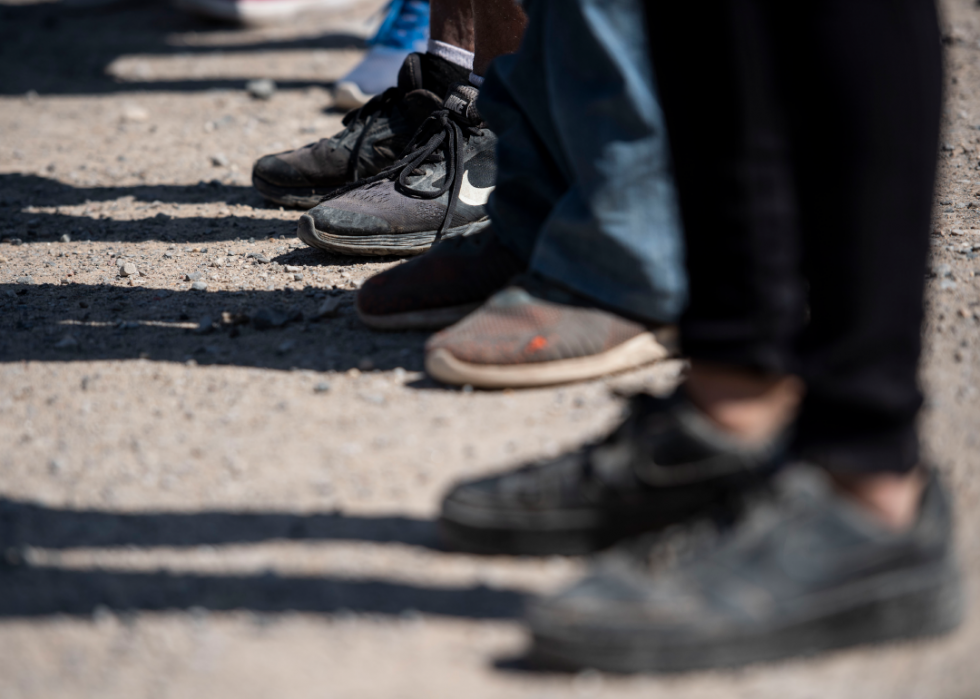
Migrants crossing the US-Mexico border per day are reduced by almost half
Unauthorized border crossings from Mexico fell from its daily average of more than 1,000 to fewer than 600 as of late March, according to Nick Miroff of The Washington Post. Illegal border crossings continued to plummet in April, as well.
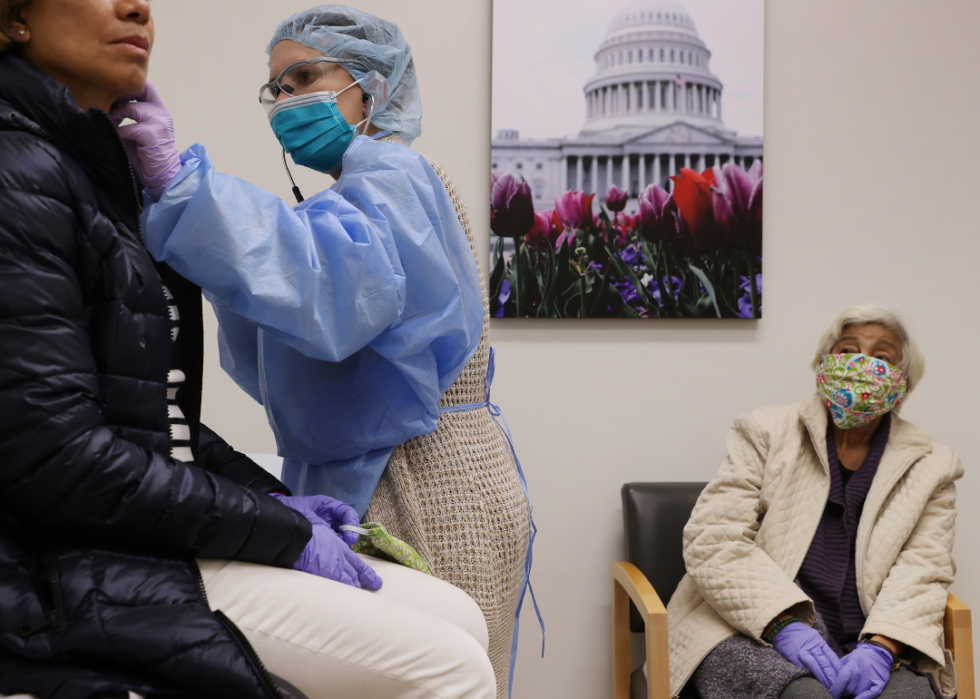
Undocumented health care workers get no paid sick leave
The health care industry employs nearly 280,000 undocumented workers, according to 2018 data analyzed by the New American Economy Research Fund. Most of these workers get no paid sick time, nor are they automatically eligible for the sick leave and job protection provided by the Families First Coronavirus Response Act, according to Jacqueline Garcia of the Center for Health Journalism.
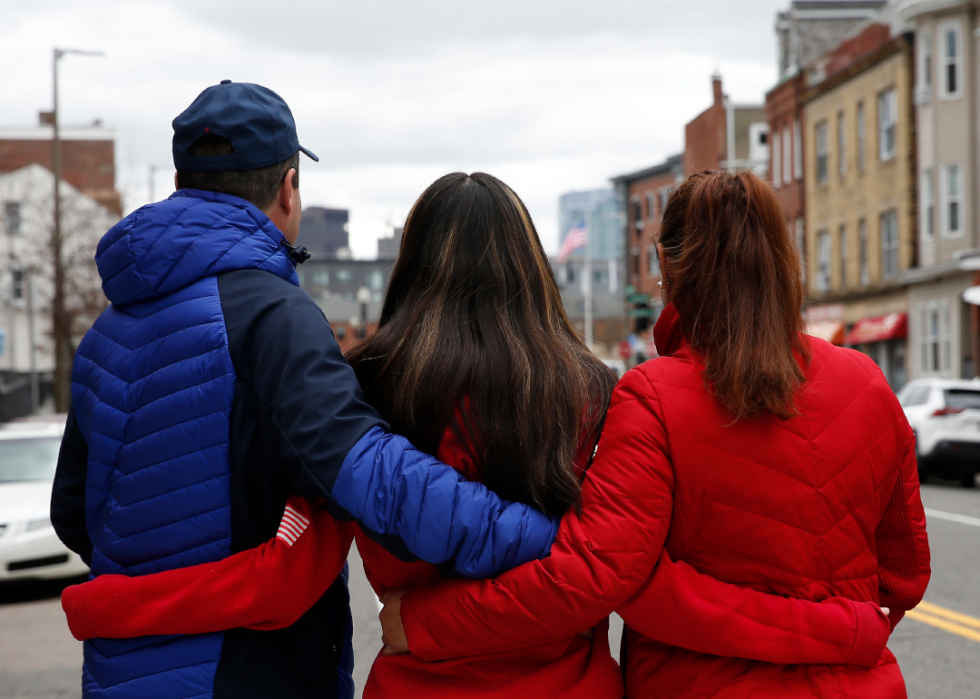
Mass layoffs put status of nonimmigrant visa holders in jeopardy
Mass layoffs during the pandemic have left tens of millions of people in the United States out of work. Job loss can be particularly devastating for nonimmigrant visa holders, like H-1B holders, as their immigration status is dependent upon employment. If nonimmigrant visa holders lose their jobs, can’t find new employment, and also can’t get back to their country of origin, they may lose their status and become undocumented, according to Muzaffar Chishti and Jessica Bolter of the Migration Policy Institute.
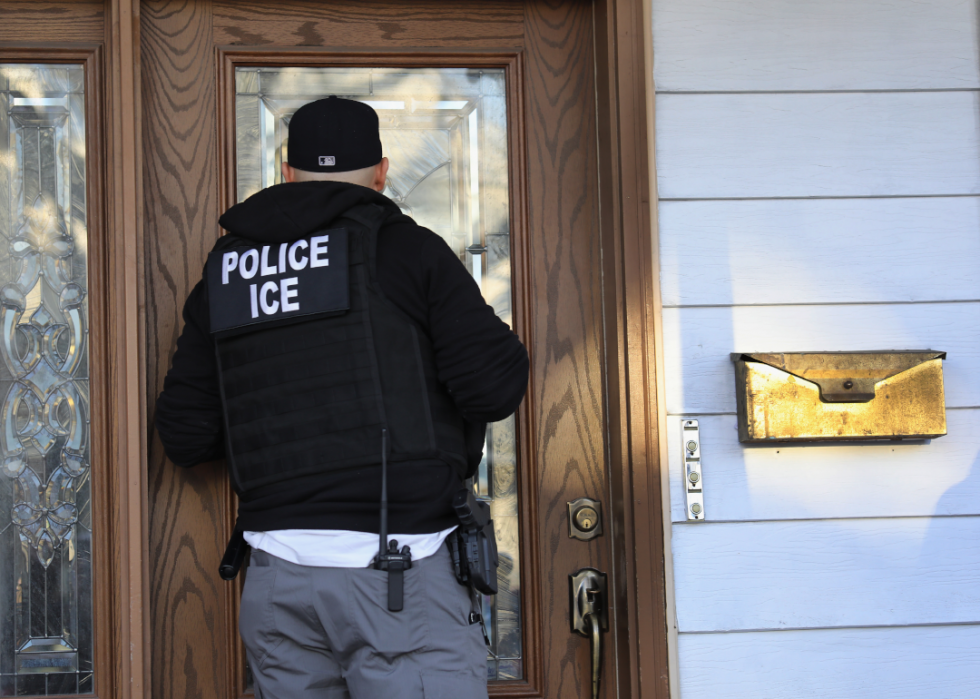
ICE temporarily suspends in-person office visits for participants in its alternative to detention program
During the pandemic, ICE has temporarily suspended in-person office visit requirements for undocumented immigrants who participate in its alternative to detention program. Instead, it is using phones and electronic reporting to facilitate communication between participants and their case specialists.
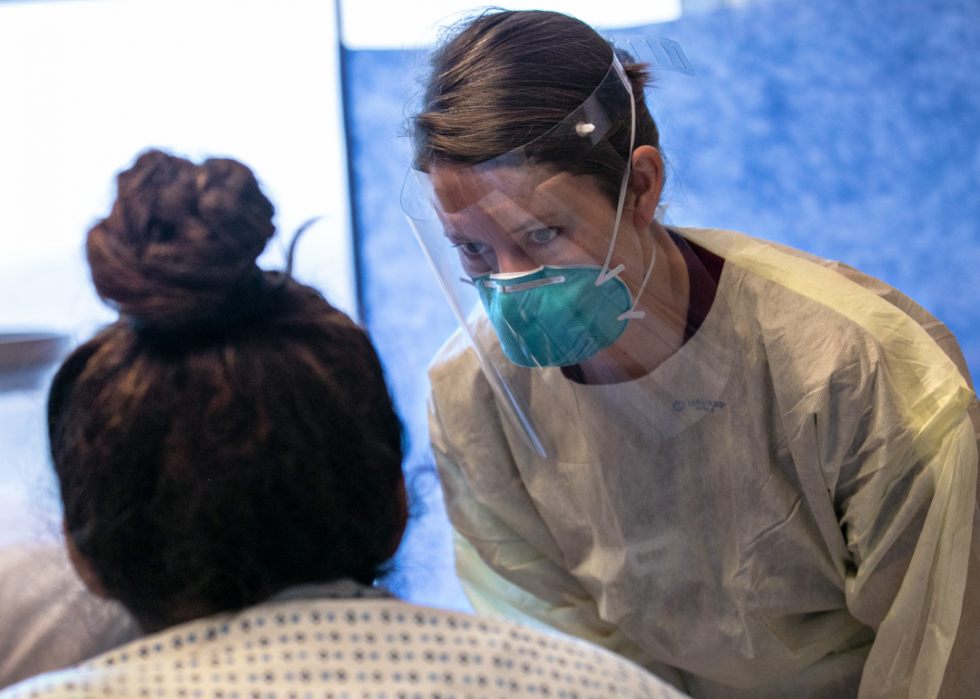
ICE stops immigration enforcement around health care facilities
ICE announced in March that it would not make arrests at health care facilities, like hospitals and urgent care clinics, unless they had special approval. Before the pandemic, ICE had been frequently performing immigration enforcement around hospitals, according to Physicians for Human Rights, which has advocated for "sanctuary hospitals" focused on the well-being of patients, no matter their immigration status.
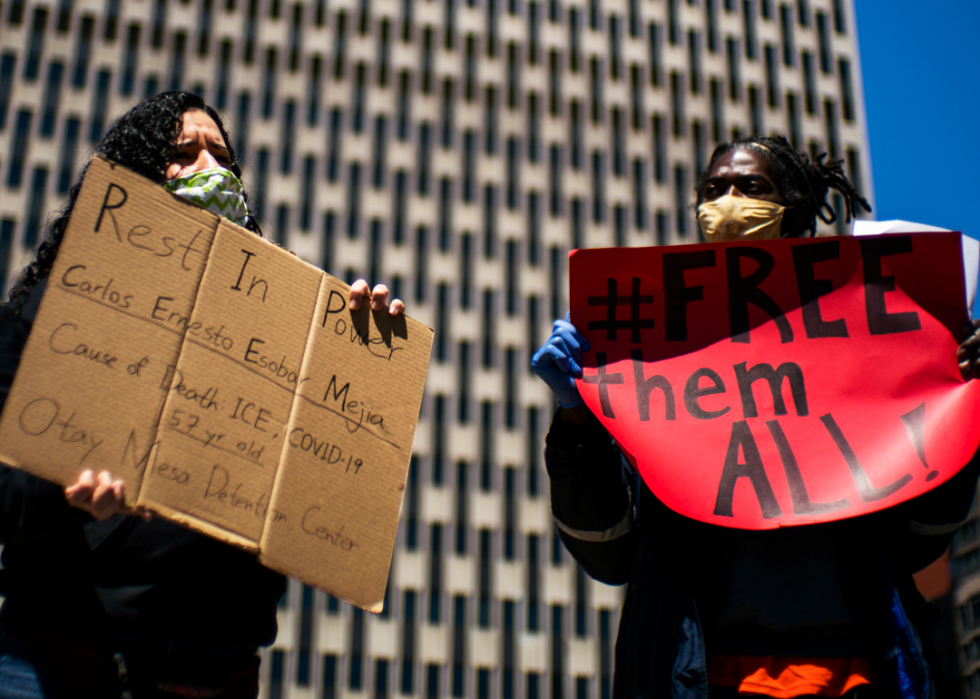
Federal judge orders ICE to identify and track detainees at high risk of COVID-19
In mid-April, a federal judge ordered ICE to “identify and track” the people it detains who may be at high risk of a complicated case of COVID-19, and consider releasing them, according to Hannah Hagemann of NPR. The court pointed out specific risk factors that ICE must use to identify people at elevated risk of the disease, like being over the age of 55, pregnancy, or chronic conditions.
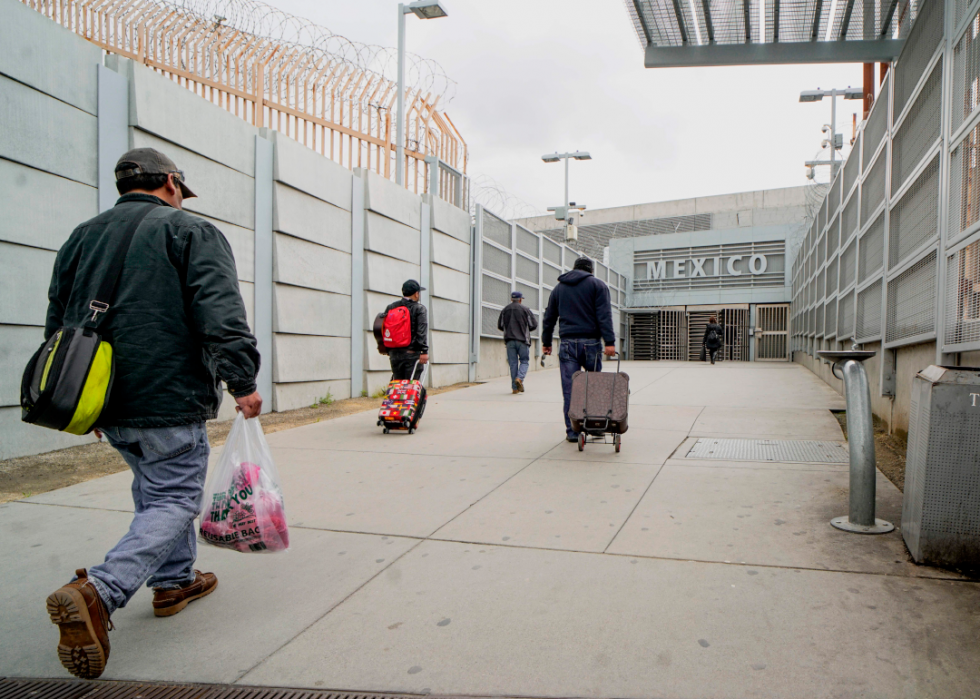
More than 41,000 migrants are turned away at the US-Mexico border
Border agents turned away more than 41,000 migrants at the U.S.-Mexico border between March and mid-June, according to Rafael Carranza of the Arizona Republic. U.S. Customs and Border Protection put greater restrictions on the ability for migrants at the border to access the country to help limit the spread of COVID-19 in mid-March.
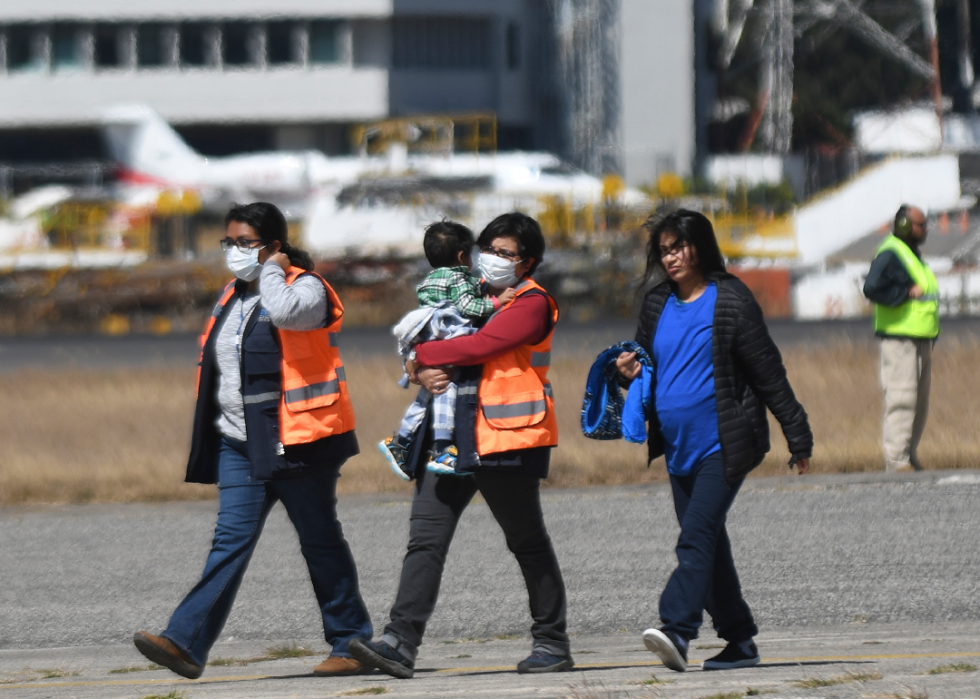
Guatemala suspends its asylum agreement with the United States
In March, Guatemala suspended its agreement to accept flights with deportees and asylum-seekers from the United States amid concerns over the coronavirus, according to Louis Casiano of Fox News. The program had already been riddled with delays, and by the end of March, it had a backlog of more than 700 cases, according to Human Rights Watch.
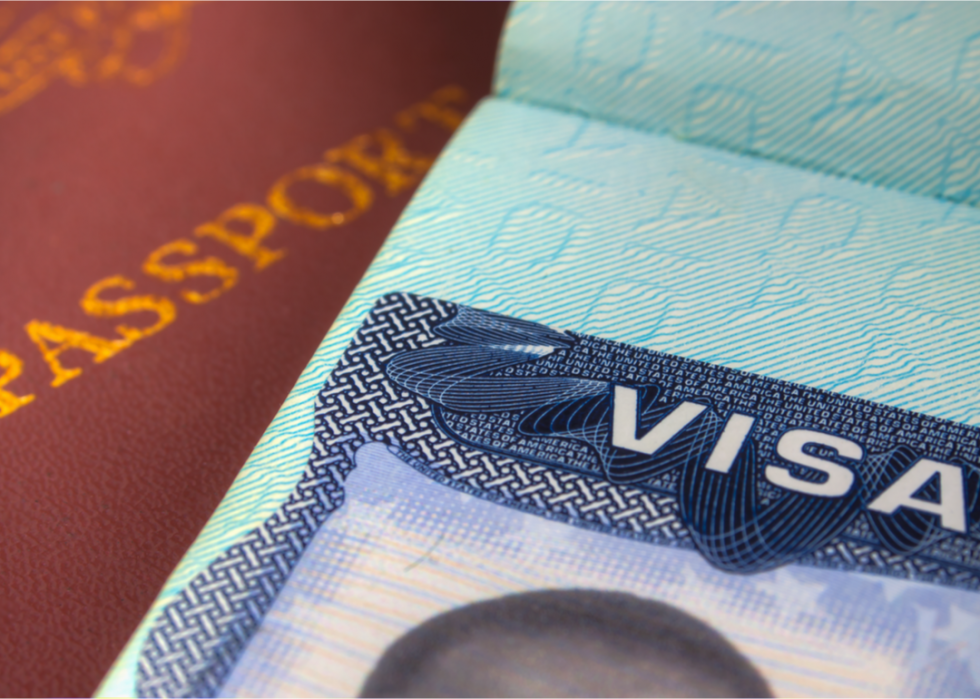
US Department of State suspends non-emergency visa appointments
While U.S consulates and embassies have stayed open for emergencies, the Department of State stopped offering routine visa services at its facilities around the world on March 20. This measure included the suspension of the J-1 Exchange Visitor Program, which allows the United States to bring in thousands of doctors from other countries.
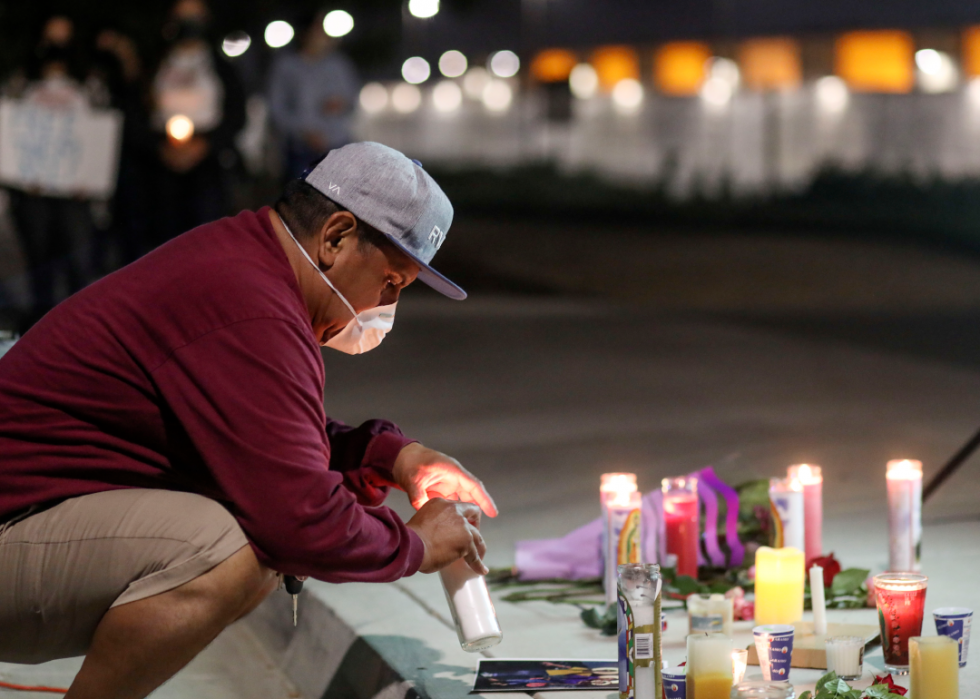
At least three people die after catching COVID-19 while in ICE custody
At least three people who had been under ICE custody when they contracted COVID-19 died as of May 27, according to Jorge Loweree, Aaron Reichlin-Melnick, and Walter Ewing of the American Immigration Council. Two people were still under detention by ICE when they died, while another person died shortly after release.
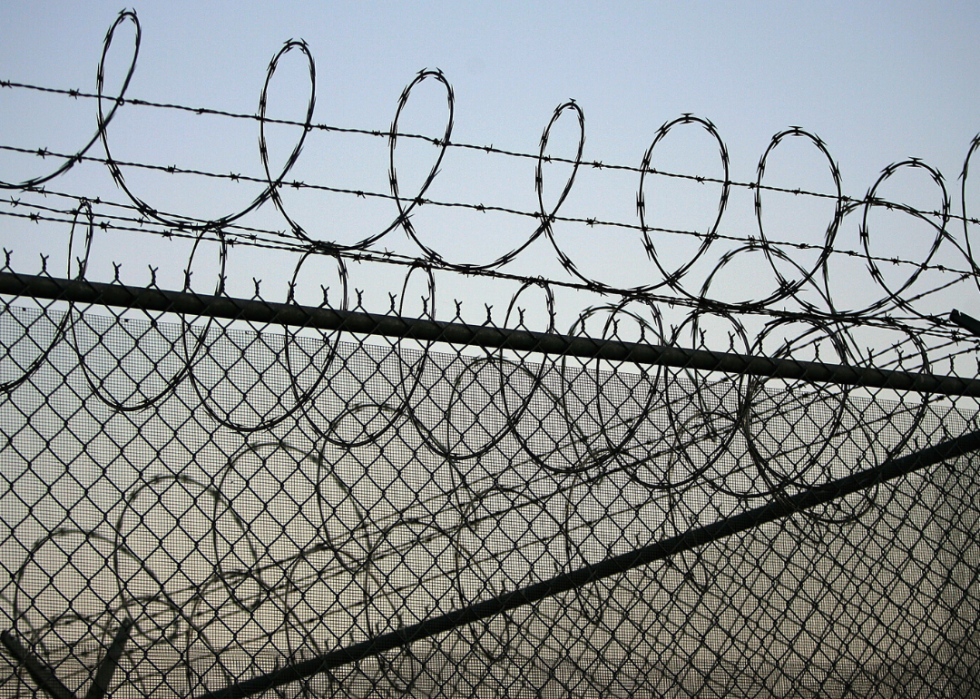
ICE retaliates against people organizing at dozens of detention facilities
Freedom for Immigrants has tracked at least 27 facilities where Immigration and Customs Enforcement has retaliated against detainees who organized on matters related to COVID-19. Reports include beatings using “a gas tank as a weapon” at the Torrance County Detention Facility in New Mexico, officers pepper-spraying dozens of detainees at the South Texas Detention Complex, and intentional sleep deprivation at the Otay Mesa Detention Center in California, among others.
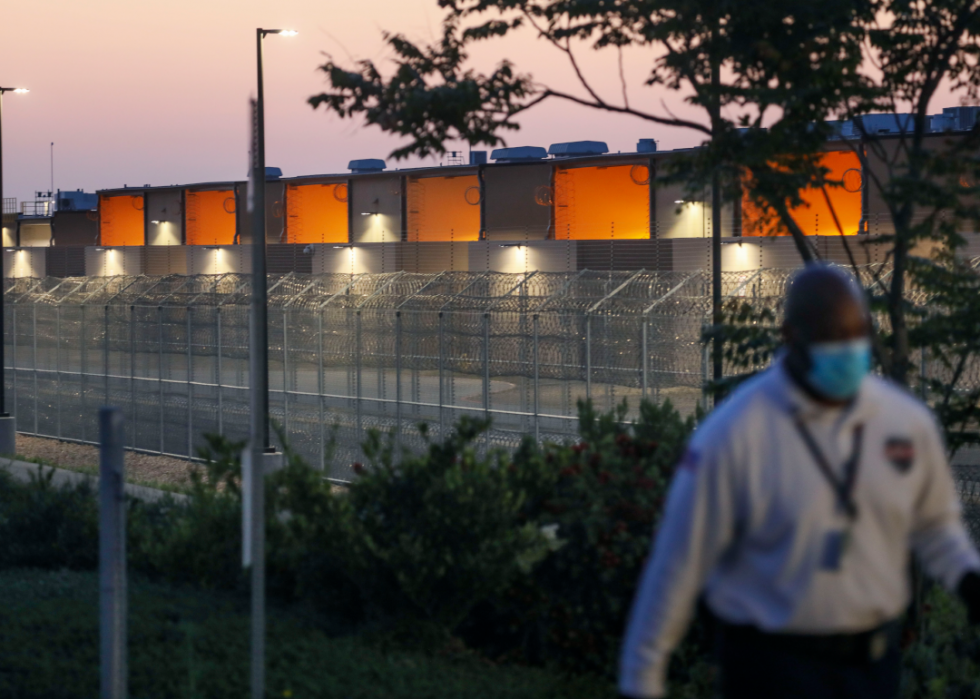
Five ICE detention facilities deny care to immigrants after they organized
At least five Immigration and Customs Enforcement detention facilities have denied health care to undocumented immigrants who have organized demonstrations related to the pandemic, according to Freedom for Immigrants. The facilities include the Pulaski County Detention Center in Kentucky, Pine Prairie Correctional Center in Louisiana, and Port Isabel in Taxes, as well as California’s Imperial Regional Detention Facility and Otay Mesa Detention Center.
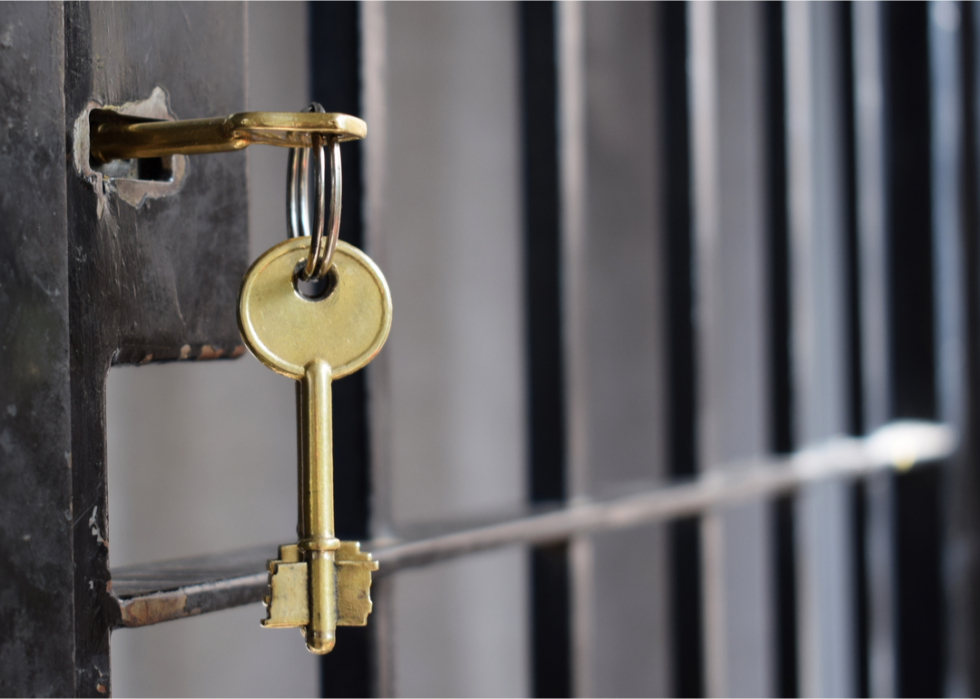
ICE puts immigrants in solitary confinement for organizing at 18 facilities
Freedom for Immigrants has collected reports that detainees at 18 ICE facilities have been put in solitary confinement or been segregated after calling for better conditions during the pandemic. Solitary confinement has been a documented punishment tactic ICE has used on undocumented immigrants for several years, according to reporters from The Intercept.
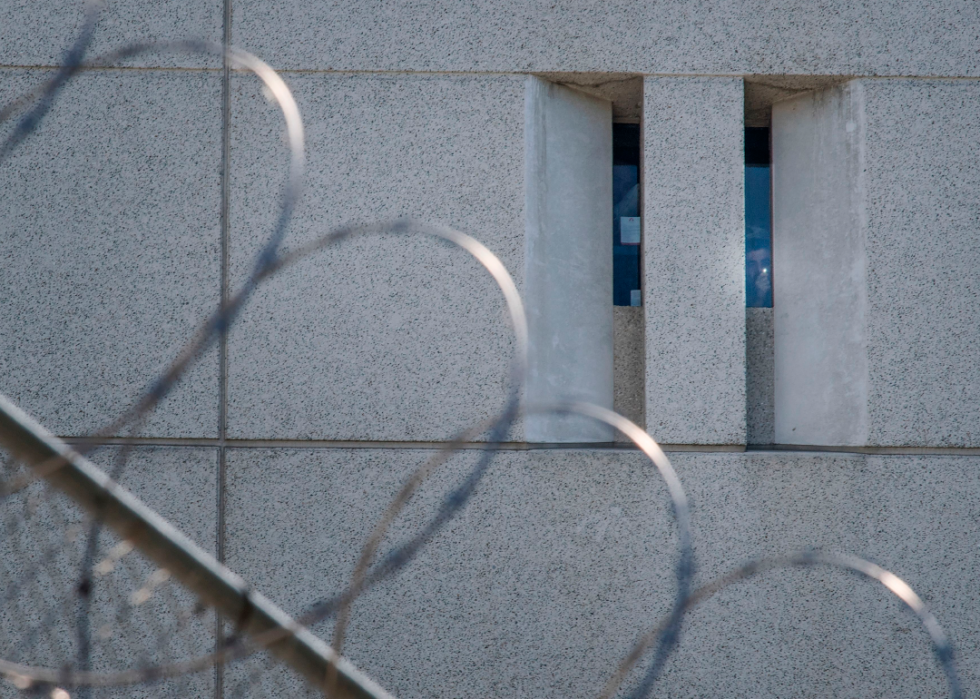
20 immigration detention facilities use solitary confinement for medical isolation
Freedom for Immigrants has tracked 20 immigration detention facilities that have used solitary confinement to medically isolate undocumented immigrants during the pandemic. One such instance occurred at Pennsylvania’s York County Prison, which placed a detainee alone in negative-air housing after showing symptoms of COVID-19, according to an April article from the York Daily Record.
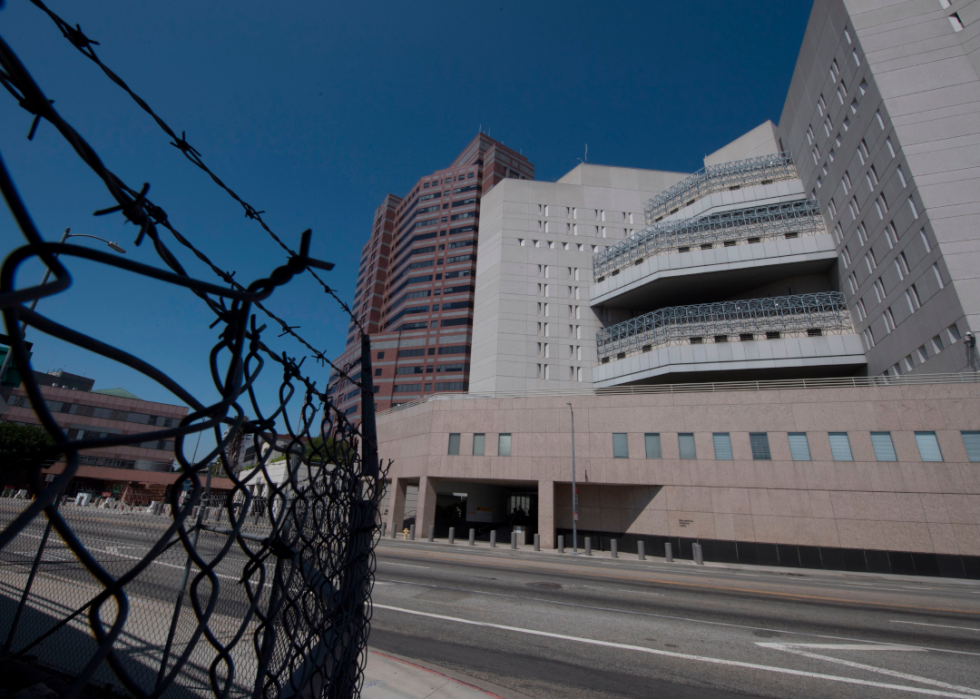
Court-mandated releases occur at 20 immigration detention facilities
Freedom for Immigrants has counted 20 immigration detention facilities in which immigrants have been granted court-mandated releases during the pandemic. ICE had released 465 detainees after receiving court orders by June 11, according to the Center for Migration Studies.
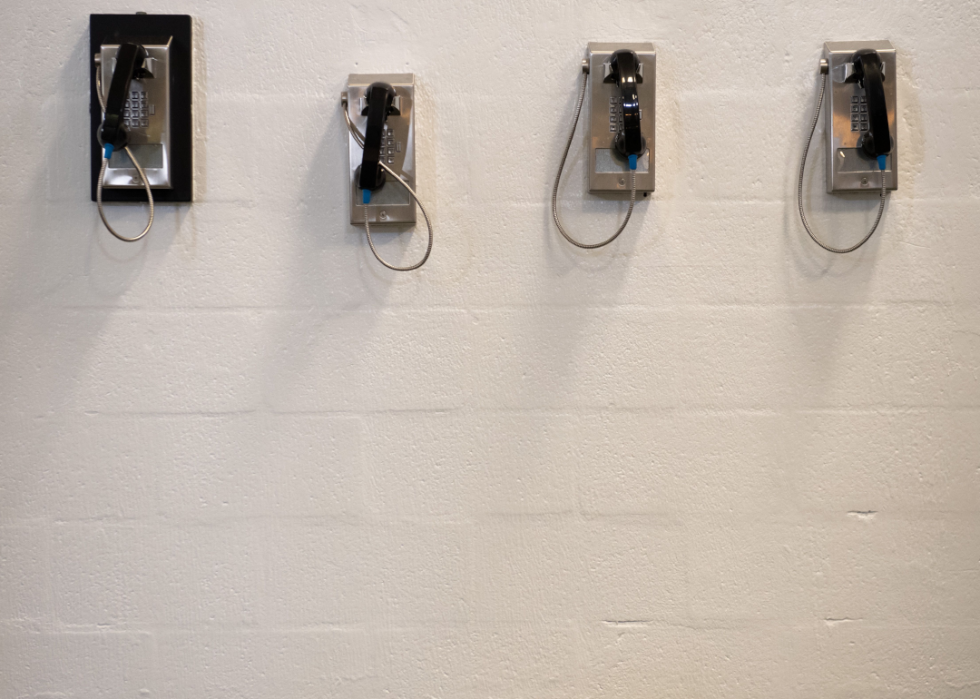
Communication barriers occur at 37 immigration detention facilities
Freedom for Immigrants has found communication barriers at 37 immigration detention facilities across the country during the COVID-19 crisis. These facilities may have not offered detainees free or reduced-cost phone calls, free video conferencing, or visitation from attorneys, or they may have had nonfunctioning phone lines.
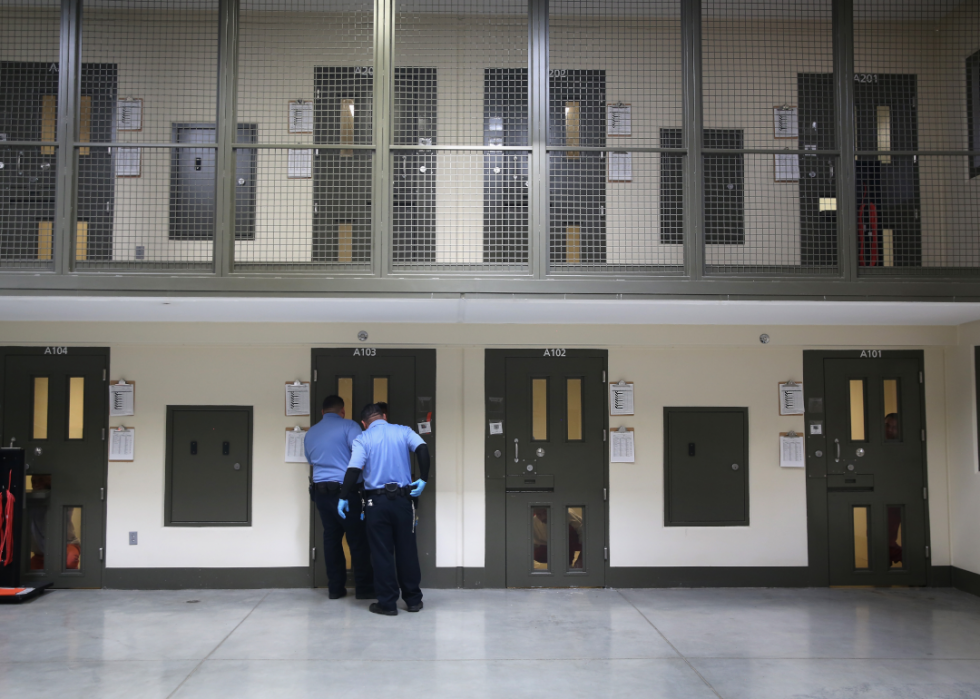
67 immigration detention facilities have reports of inadequate health services
Inadequate health services and medical response have been reported at 67 immigration detention facilities across the country, according to Freedom for Immigrants. These issues include medical neglect, a shortage of appropriate food, failure of staff to disseminate information about the coronavirus, and forced janitorial services, among others.
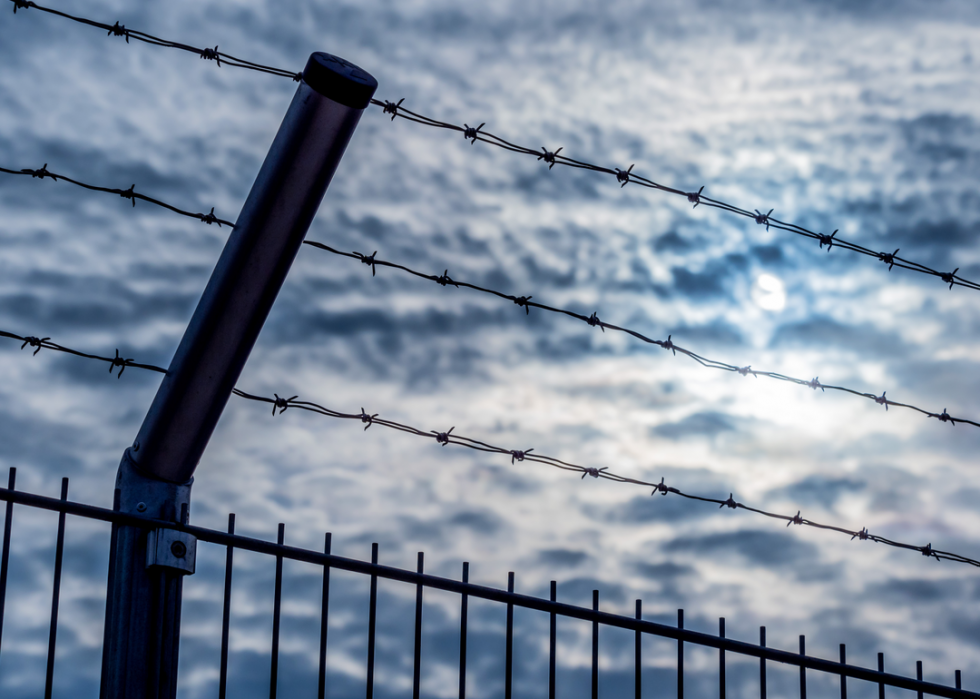
Immigrants lack access to soap at 45 immigration detention facilities
Freedom for Immigrants has found that detainees at 45 immigration facilities have not been provided soap and other personal hygiene products during the pandemic. One report from the Denver Contract Detention Facility disclosed that “there is no hand sanitizer provided anywhere.”
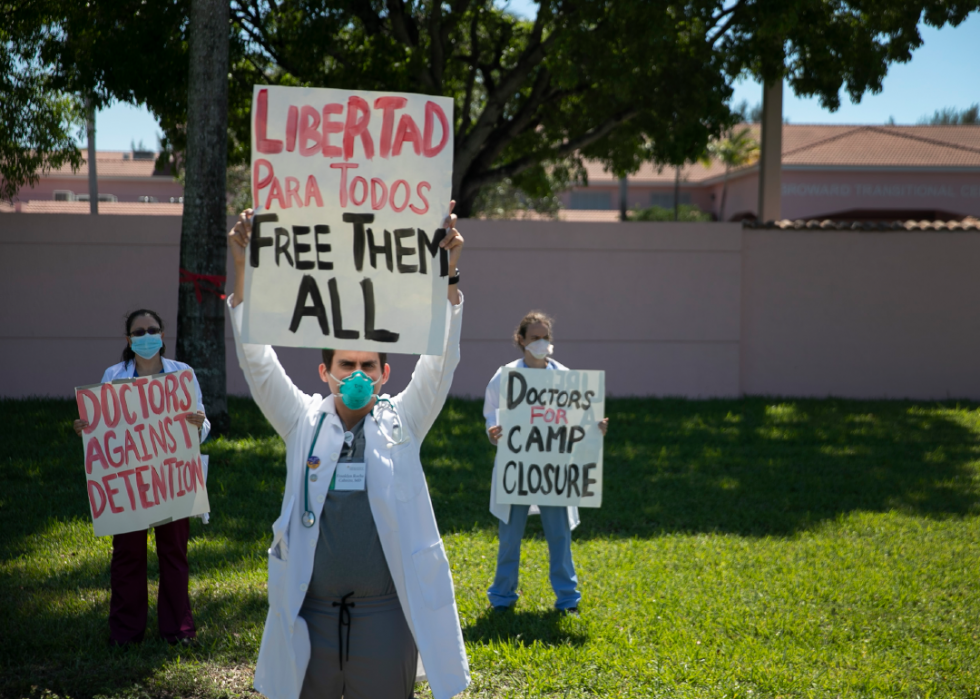
51 immigration detention facilities have unsanitary conditions
Unsanitary conditions have been documented by Freedom for Immigrants at more than 50 immigration detention facilities in recent months. A June 9 report from the Broward Transitional Center in Florida conveyed that people with the coronavirus are being kept among the general population.
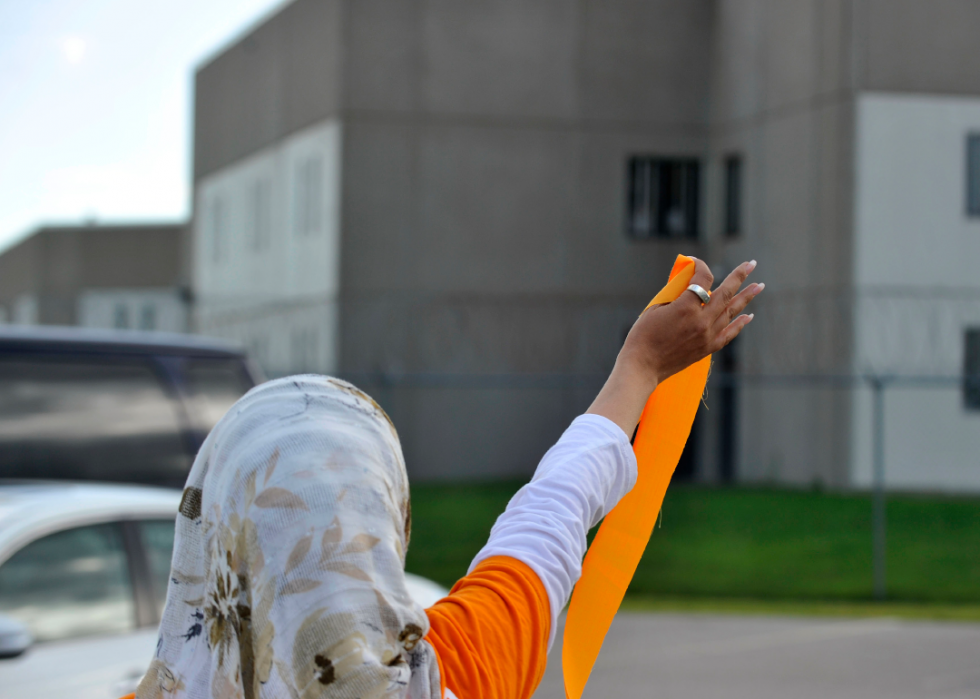
66 immigration detention facilities have at least 1 COVID-19 case
There has been at least one known case of COVID-19 at 66 immigration detention facilities, according to Freedom for Immigrants. ICE has reported that more than 1,600 positive cases of the coronavirus have been confirmed among detainees by June 4, according to Tom Jawetz and Nicole Prchal Svajlenka of the Center for American Progress.
You may also like: Counties in every state where COVID-19 cases are growing fastest



